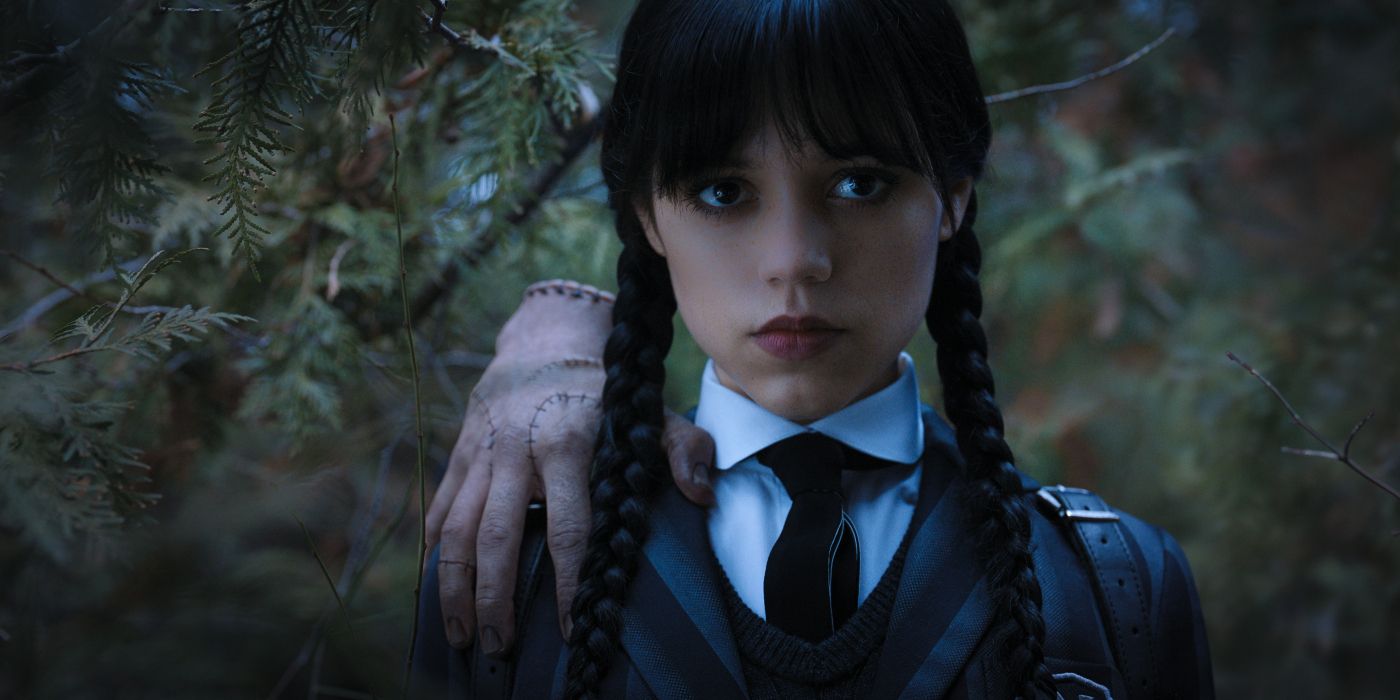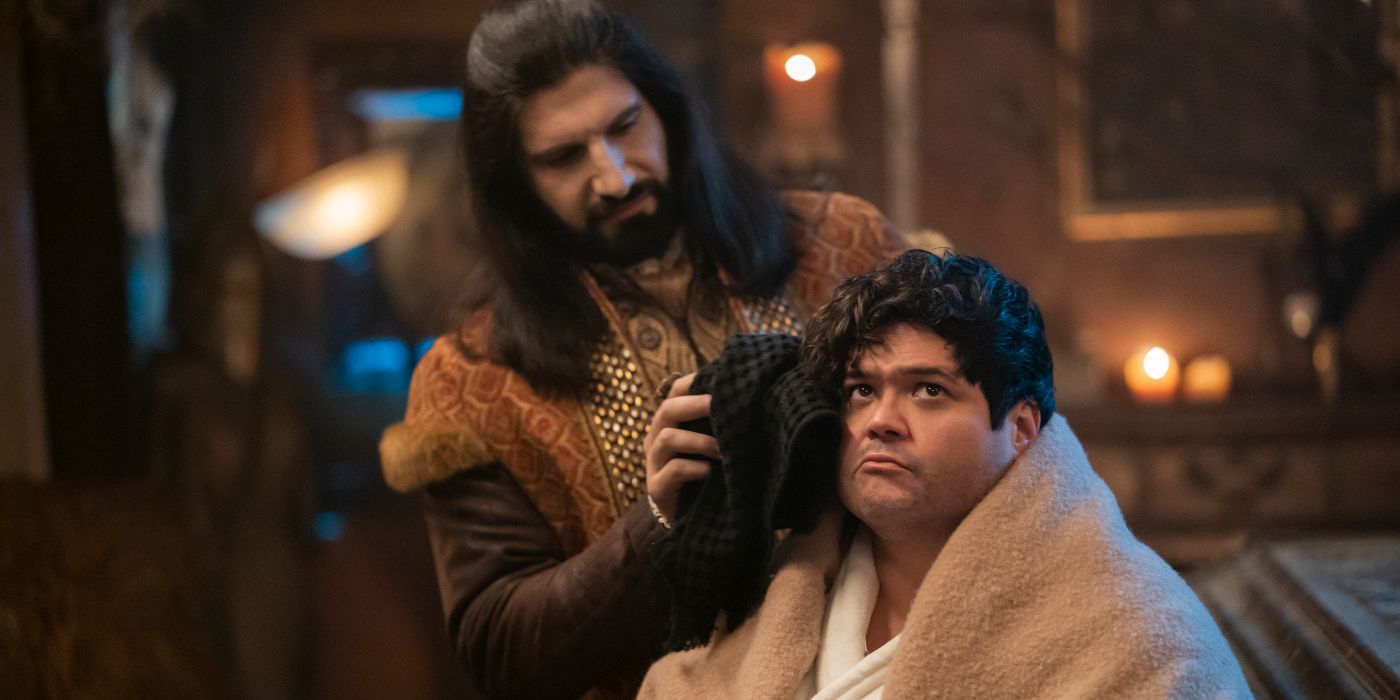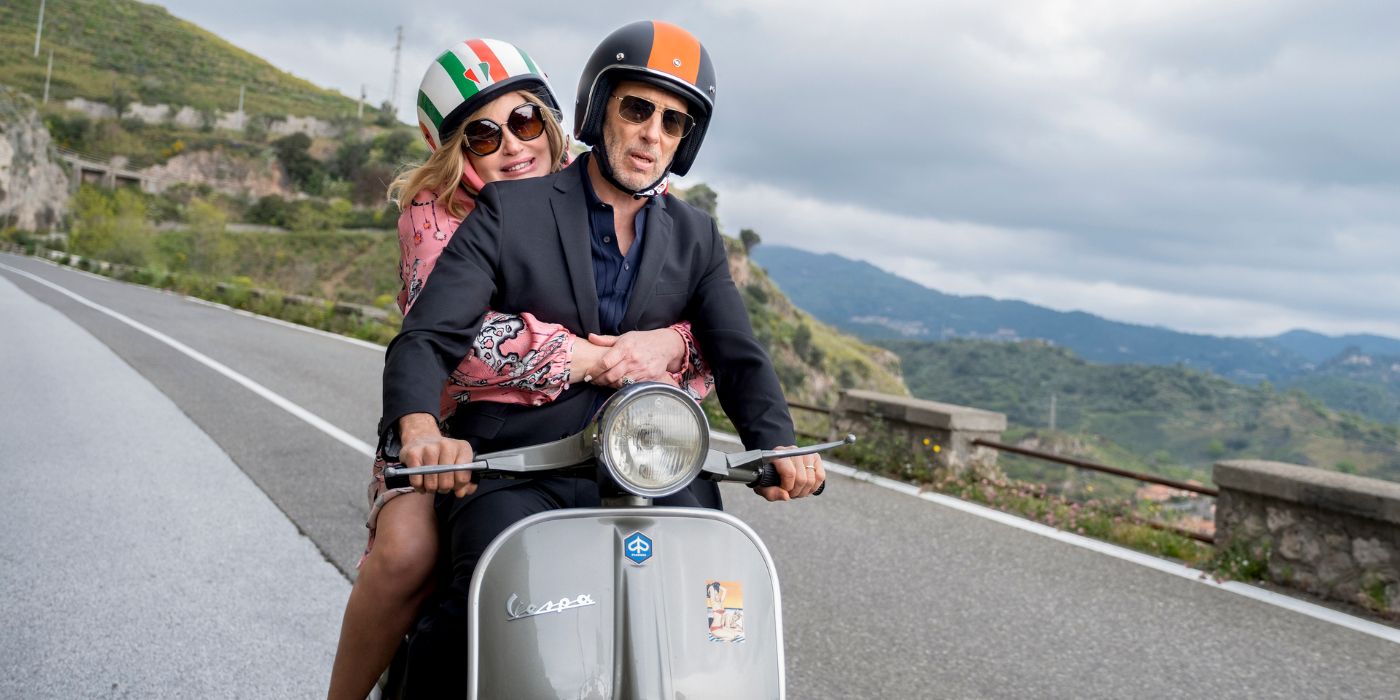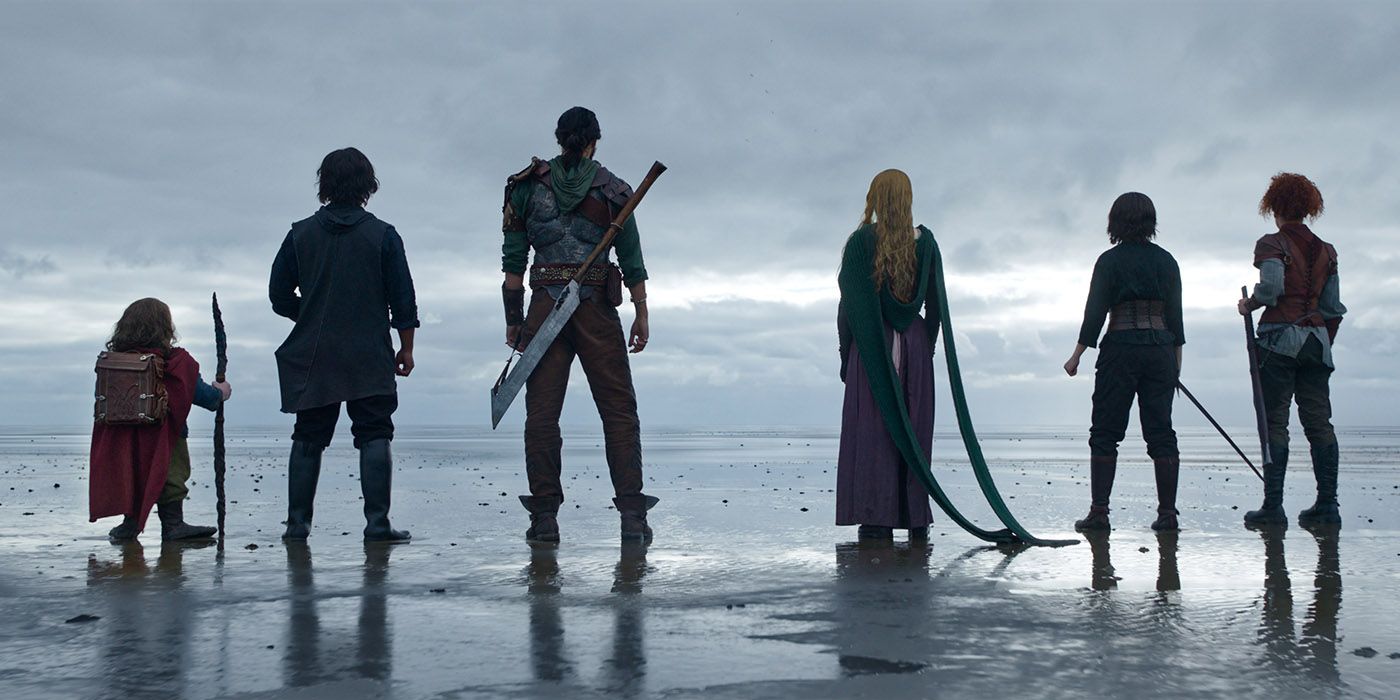Occasionally, the conversation around television seems to come back to the question of whether we're living in the age of Peak TV — and to an extent, that's true. If it seems like there are more shows to watch now than ever before, more titles to keep track of, and even more spoilers to dodge after a primetime viewing night, that's because there are. But with those come an even broader landscape on the small screen, a wider range of worlds that draw us in from the comfort of our couches and invite us to escape from our realities, if only for the span of thirty minutes to an hour at a time (or even longer, depending on whether you're primarily a binge-watcher!).
There isn't just a range of TV titles available at our fingertips; there's an even wider variety of ways to watch the shows we love, too, thanks to several new additions to the streaming landscape, but network television has proven its ability to stay in the game, debuting series that not only dominate the ratings each week but social media's equivalent of the watercooler conversation too. With that in mind, it would be impossible for any one person to watch everything and still preserve their sanity, which is why Collider's editors decided to team up for yet another year in making our picks for the best TV shows of 2022. Some series said their farewells, while others are only just getting started, but all of them served as a testament to the power of the small screen this year.
A League of Their Own
One of the most refreshing series of 2022 is no doubt the reboot of A League of Their Own on Amazon Prime. Throwing a curveball in the beloved story inspired by the 1992 film and integrating so much of what the original lacked, the new series centers its eight episodes around strong, immaculately written stories that were left out of the conversation during that time period through the inclusion of LGBTQ+ and BIPOC characters. With a vivacious mix of personalities amplified by an equally vibrant cast led by Abbi Jacobson, D’Arcy Carden, and Chanté Adams, the series hits a real home run in what is a bold reimagining amid traditional reboot conversations.
Never once does this show compromise on its charisma and spunk, and that’s what makes it so much fun! Without being a cookie cutter of the original to nail commentaries around segregation or women’s rights, the series has its own identity in being hilarious one minute and deeply poignant the next. Best of all, as it stays authentic to itself, it never loses its charm and is everything you could love and more because of its cast. Highlighting the joys of family in all its nontraditional forms and the friendships that hold us up (Max and Clance are true friendship goals), the show fleshes out its characters most lovingly through its talent. As Jacobson and Adams hit a grand slam as two aspiring players trying to live their dreams while owning their coming-out chapters, Carden is perfect as the dynamically sharp Greta in what might be one of the best performances of her career thus far. From The Good Place to Barry, Carden is magnanimous in just about everything she does, but it’s in this series that she truly steals the show with a sparkling je ne sais quoi embodying confidence with stellar comedic timing. Anytime she’s on-screen — even if it’s in the background — it’s hard not to pay attention to her. From casting to writing and gorgeous costume design that will make you wish you could raid the closets of these characters, the series hits a grand slam on all fronts to be the real bee’s knees of 2022, I tells ya! — Tania Hussain
Abbott Elementary
The return of Quinta Brunson's hit series was a much-anticipated one this year, and with good reason. Similar to the more otherworldly, fantasy-based dramas you can really only find on streaming, the ABC mockumentary show has practically become appointment viewing, with Abbott Elementary earning not just wildly impressive numbers in terms of audience ratings but widespread critical acclaim, taking home three Primetime Emmys for its first season.
It would be enough to say that the cast owns our hearts — led by Brunson herself as eternally optimistic teacher Janine Teagues, the ensemble at the center of Abbott Elementary is infused with comedic timing (hat tip in particular to Janelle James as endearingly disastrous principal Ava Coleman) that seems effortless as well as a knack for tapping into those deeper moments of emotional vulnerability. With Season 2, the teachers at Abbott are also exploring more of their interpersonal dynamics, relying on one another not just as coworkers but as sources of advice and deepening friendship. (And who could forget the will-they-won't-they between Janine and Tyler James Williams' Gregory that leaves us breathless with anticipation every week?)
But what elevates Abbott from a good TV show to one of the best of the year (and quite possibly of all time) lies in its ability to weave in a thoughtful address of the biggest issues facing real teachers every day. From supply shortages to trying to make the most of a paper-thin budget to the ongoing debate of public versus charter schools, Abbott Elementary helps us to discover an awareness of the struggles educators are dealing with. It's comedy, but comedy delivered with an arrow of conviction. What could be better than that? — Carly Lane
The Afterparty
With The Afterparty, creator Christopher Miller (The LEGO Movie, 21 Jump Street) revamped the murder mystery by making each potential killer the star of their own story. In doing this, we get a musical starring Ben Schwartz, a Fast and Furious-style action film with Ike Barinholtz, and an animated tale centered around Zoë Chao.
But in a year that had great mysteries in everything from Glass Onion to The White Lotus, The Afterparty also felt the densest as an actual mystery, as the show leaves tiny clues throughout every episode, making this first season a real puzzle that the audience could solve and explore, with little hints left in the background, and tiny inconsistencies catching the viewer’s eye. This ambitious mixture of mystery, comedy, and multiple genres made The Afterparty an always exciting and fun riddle to solve. — Ross Bonaime
Andor
Four years after it was announced that Rogue One: A Star Wars Story would be receiving a prequel series centering around Cassian Andor (Diego Luna), Andor arrived on Disney+ and quickly revealed itself to be one of the best new series of 2022. While previous Star Wars series have wowed audiences with the impressive abilities of The Volume and reunited us with beloved Prequel Era characters, Tony Gilroy found a way to strip a galaxy far, far away down to the basics, and build up a riveting spy thriller that struck straight at the heart of what the franchise could always be.
Luna’s undeniable star quality and charisma serve as the perfect anchor to a spectacular ensemble cast of fully-formed, fleshed-out characters who exist not only to benefit the plot but to give life to a new cast of characters that fill in the vibrant world that Gilroy constructed across Season 1. Andor isn’t just the best Star Wars story since Rogue One or the original films because it’s gritty and mature, it’s the best Star Wars story because it knows how to handle its characters, and it knows how to create an engaging journey without spectacle. Gilroy has proven that Star Wars can and should explore the harsh realities of the war that gives the franchise its namesake. There’s no doubt that Andor will be remembered as one of the best series of the decade, and it is certainly a Star Wars story that has pushed the bar of what the franchise is capable of doing. — Maggie Lovitt
Atlanta
In 2022, Donald Glover and company gave us two of the best seasons of TV this year. The show’s third season sent Earn, Van, Paper Boi, and Darius on a trip to Europe, full of strange diversions, standalone episodes, and the weirdness turned up to 11. The fourth and final season brought this group back to Atlanta and refocused on the dynamics between these characters, while also exploring their thoughts on legacy, life, and the struggles of both.
Together, these two seasons show the brilliance of Atlanta, how it could thrive in being the strangest show on television, content to explore the deeper meanings of A Goofy Movie for an entire episode, or it could be superb by just focusing on these four characters desperate to get some Popeyes. Glover created a unique vision that was deeply hilarious, always unpredictable, and a profound commentary on race that united all of these distinctive stories under one umbrella. Atlanta wasn’t just one of the best shows of 2022; it might go down as one of the all-time greats. — Ross Bonaime
Barry
While the first two seasons of Barry often leaned into the comedic ideas of its premise of a contract killer wanting to become an actor, Season 3 went down the darkness of this concept. Bill Hader’s Barry suffered a deep depression and attempted to atone for his past sins, which would eventually lead to his downfall. But despite how likable Hader himself is, Barry doubled down on making Barry a true villain—even if that’s not what the character wants to be—and questioned whether or not Barry could, in fact, make up for the horrific pain he’d caused on so many.
It’s rare that a show can pull off such a tonal shift and still be just as engaging and brilliant, while also throwing in brilliant moments of rare comedy and some of the best directing on a show this year, but Barry manages to balance all of this in Hader’s twisted little world. — Ross Bonaime
The Bear
If any series that premiered this year can be described as “chaos distilled,” it’s most likely The Bear, the story of Carmy, an overworked high-profile chef (Jeremy Allen White) who returns to the world of lunch counters to take over his dead brother’s restaurant in Chicago. With nonstop yelling, swearing, and (sometimes not-so) near-stabbings, the series from creator Christopher Storer perfectly captures the frantic insanity of working in food service, from the griminess of the physical space down to the mildly homicidal rage the environment can induce, even when you’re grieving.
And while the show’s writing is tight and perfectly constructed, it’s the ensemble cast that really makes it soar, as though they were lifted directly out of a real lunch counter and chucked down on a film set with no instruction as to how to proceed. White carries all of Carmy’s grief for his brother on his shoulders, all the while balancing on the head of a pin as his world threatens to come down around him. Ayo Edebiri and Ebon Moss-Bachrach play the angel and devil on his shoulders, respectively, and while the premise may seem as dry as cheap beef, every member of the cast so convincingly sells it that you’d risk the lunch rush for them any day. —Maggie Boccella
Better Call Saul
While there was a lot of great television in 2022, no series was as strong and visually breathtaking in its storytelling and performances as Better Call Saul. The Breaking Bad spinoff’s sixth and final season premiered this past spring and delivered on every promise, keeping viewers at the edge of their seats for its 13 episodes. Consistently brilliant thanks to the genius of Vince Gilligan, the show might have even outdone its parent series thanks to the incredibly smart writing, cinematography that rivaled movie quality, and a cast with chemistry never before seen or felt by audiences that is seriously a masterclass for aspiring actors. In so many ways, Better Call Saul is one of the best series not just of the past year, but perhaps of our generation, and we can thank the magnificent Bob Odenkirk for leading the charge. Odenkirk might have had a background in comedy prior to starring in the award-winning series, but that element definitely elevated his performance for a man who eventually hits darkness. Sure, Saul Goodman is terrible and by the end, we see just how terrible he is (that Carol Burnett scene had ALL of us screaming, trust me), but Odenkirk manages to wrangle him back to a likability thanks to his underdog personality. Whether he was Jimmy or Saul, there is just something about him that we cannot get enough of. Maybe it’s the colorful suits or snappy one-liners, but he is more than meets the eye and one of the best complex, multidimensional characters on TV.
But his performance wasn’t the only standout in the show’s six seasons. Can we talk about Rhea Seehorn? This is an actress who is way ahead of her time, standing in masterclass depths with an icon like Lauren Bacall, with a similar steady and graceful gaze, proving she too can create a kaleidoscopic yet self-conscious performance that dazzles. Creating a character that is likable with a verve unseen in the Breaking Bad universe, Seehorn’s performances this past year have been masterful and heartbreaking, and a different take on the Kim we first met in Season 1. It would be remiss to not gush over Michael Mando as well, who was a real badass this past season and one that the fans will love forever. Nacho’s profound evolution since his early cartel days catapulted Mando into best TV character status and his ultimate fate, while tragic and shocking, has sparked one of the best monologues from television in the past few years. That grit, that growl — the whole thing was perfect, yet sad. As we close off 2022, never forget the beauty of this show. It is perfect, tragic, and funny, and exactly what TV is all about. The series is in legendary status now, no doubt. — Tania Hussain
Black Bird
Anchored by career-best performances from Taron Egerton, Paul Walter Hauser, and the late Ray Liotta, Black Bird is the rare true-crime series that feels wholly realistic. Egerton's Jimmy Keene is by no means an innocent protagonist; rather, he's a cocky drug dealer who agrees to enter a high-security prison to try to find the bodies of victims of a mentally unstable serial killer, Hauser's Larry Hall.
But Keene's motives aren't entirely altruistic; if he helps the feds find the bodies, his prison sentence will be drastically reduced. The cat-and-mouse game makes for some compelling drama, and Ray Liotta's turn as Jimmy Keene's dad is what awards are made for. — Abby Cavenaugh
Chucky
Season 1 of Chucky was a bit rough, but wow, did Season 2 get it right. They cut down the cast to the core three kids: Jake (Zackary Arthur), Devon (Bjorgvin Arnarson) and Lexy (Alyvia Alyn Lind), and yet they expanded the core cast of Chuckies to at least three. Each Chucky had their own personality, their own special brand of psychosis, yet still felt like the Chucky we all know and love.
Putting the kids in a parochial school could have gone poorly - or at the very least, become very clichéd — but it didn’t. Bonus points go to the show for killing off Devon Sawa in Season 1 and installing him in a new role in Season 2 — with a slight nod to his appearance: “Doesn’t he remind you of my dad?” Here’s hoping Sawa gets killed off every season and returns each following season as a different character. — Alyse Wax
Cobra Kai
When Cobra Kai arrived on YouTube Red back in 2018, many didn’t even give the show much attention. It was their loss, but also maybe a blessing in disguise as when the Karate Kid sequel series made its move to Netflix in the middle of the COVID-19 Pandemic, it took the world by storm, and more people than ever were finally given the show the attention it deserved.
Cobra Kai Season 5 is the biggest and most explosive season of the series yet, raising the stakes, bringing in more call-backs, and giving us some shocking betrayals and alliances. Yuji Okumoto’s Chozen was this season’s biggest stand-out showing off some terrific comedic timing, but there really isn’t a weak link in the cast between the adults and the younger cast members. Is it goofier than ever? You bet, but that’s all part of the charm of Cobra Kai. — Nate Richard
Guillermo del Toro's Cabinet of Curiosities
Horror anthologies have had a long and successful history on television. Guillermo del Toro continues that tradition with his Cabinet of Curiosities. This eight-episode collection of stories includes everything from period pieces to cosmic horror tales; from gory stories and body horror to quiet reflections on trauma and death. With directors as wide-ranging as Jennifer Kent, Ana Lily Amirpour, and Panos Cosmatos, there is something for everyone here. Here’s hoping we get a new selection of stories every Halloween. — Alyse Wax
His Dark Materials
I unabashedly adore Philip Pullman's His Dark Materials books, but when BBC and HBO announced that they were taking his first trilogy and turning it into a series, I was apprehensive. After all, 2007's The Golden Compass was disastrous in the way that it portrayed and honored the original source material of The Northern Lights. However, His Dark Materials, the television series, proved that it not only understands the complexities of Pullman's themes and stories but that it can improve on the original. Each season follows a book in the trilogy, with Season 2 following The Subtle Knife and now Season 3 adapting The Amber Spyglass.
For lovers of the books, His Dark Materials Season 3 is an emotionally devastating conclusion to the series, one that stays loyal to the books but offers a deeper look into more opaque characters like Mrs. Coulter and Lord Asriel. Like the seasons before it, the highlight of the show has to be Ruth Wilson's performance as the charismatic and enigmatic Mrs. Coulter. Though Dafne Keen and Amir Wilson's scenes together as Lyra and Will take the cake for the season, especially as the series draws to a close. A required viewing for those who love these books. — Therese Lacson
House of the Dragon
It's hard to imagine that earlier this year, I was uncertain about just how I would feel about returning to Westeros. After being burned by the Game of Thrones series finale like many others, I approached House of the Dragon with a healthy dose of skepticism and judgment. But the show not only exceeded my expectations for what was possible for a show about the tragic Dance of the Dragons, but it quickly shot up to the top of my list as my favorite show of the year.
The sheer amount of talent in the cast, from experienced actors like Paddy Considine and Matt Smith to relative newcomers like Milly Alcock and Emma D'Arcy, means the series is packed with scenes that guarantee emotional weight behind every moment. With the juicy family drama that leans more into politics and internal strife than battles and exploring new distant lands, House of the Dragon managed to feel intimate and contained. Gone are the house rivalries, the Starks and Lannisters act as background characters to the various morally grey Targaryens who all vie for the Iron Throne. Of course, the dragons are flashy and still a delight to see on screen, but the strength of the series lies in the infighting of this insanely incestuous family. — Therese Lacson
Interview With the Vampire
I might have been a little more predisposed to welcome AMC's new adaptation of Anne Rice's bestselling novel Interview With the Vampire with open arms — I've always been something of a genre watcher first and foremost when it comes to television, with a readiness to lose myself in fantasy and sci-fi and horror over many of the contemporary shows both past and present. But Interview with the Vampire bowled me over from the very first words uttered by Jacob Anderson's Louis de Pointe du Lac, a captivating tale that swept me to 1910s New Orleans where thrilling promise and sensual debauchery awaited in equal measure.
Each new presence on-screen was a delight to witness — Sam Reid's Lestat de Lioncourt is every ounce the Brat Prince that you want him to be, mercurial and alluring, while Bailey Bass continually disappears into her role as the perpetually-teenaged vampire Claudia, with all the emotional ups and downs you'd anticipate from someone trapped in forever pubescence. In the realm of the present day, Eric Bogosian's Daniel Molloy is far from the wide-eyed interviewer we knew from the novel, instead offering the type of tenacious journalist that wasn't afraid to ask the tough questions (even from a subject who could just as easily eat him as provide answers). And while it may have been somewhat obvious who Assad Zaman was truly playing by the time Rashid's identity was revealed, the journey to the unveiling had been so entrancing up to that point that it didn't matter if you'd already figured out the mystery. With a Season 2 confirmed, and so many more books from Rice's world of immortal beings to adapt, it's clear the story is only just beginning, and when it returns, I'll be perched on the edge of my seat eager to drink in every single one of its words. — Carly Lane
The Lord of the Rings: The Rings of Power
Following Peter Jackson’s near-perfect trilogy and airing mere weeks after the pilot of HBO's acclaimed House of the Dragon, The Lord of the Rings: The Rings of Power had a steep hill to climb before it even took its first step into the legendary island of Númenor. Based on the fantastical work of J.R.R. Tolkien, the ambitious Amazon series is set thousands of years before the events of The Hobbit and The Lord of the Rings during the Second Age of Middle-Earth (i.e., the time when the rings were created, including, of course, the One Ring). The Rings of Power introduces an almost entirely new cast of characters with a rich history, but it does bring a young Galadriel and Elrond, played by the magnetic Morfydd Clark and Robert Aramayo, respectively, both of whom add new dimensions to Tolkien’s beloved characters.
Over the course of 8 visually stunning episodes, Rings of Power dives deep into the brewing divide between man and elf, the shadowy beginnings of the Dark Lord Morgoth’s greatest lieutenant, Sauron, and the forging of the rings of power. Although the Prime series has been criticized by some for its pacing — and by Tolkien purists and diehard fans of the original film trilogy for merely existing in Tolkien and Jackson’s shadow — Rings of Power has a lot going for it. With a massive budget, it’s no surprise that the show is gorgeous to look at — an absolute visual feast that captures the sweeping majesty of Tolkien’s Middle-earth to a T. But even more importantly, Rings of Power adds layers upon layers of nuance to Middle-earth politics, adding even more dimension and complexity to the already rich original trilogy. The underlying question of the true identity of Sauron and The Stranger (is he Gandalf? Is he Sauron?) is just icing on the cake. — Rae Torres
Moon Knight
Given Marvel’s yearly output, both across television and the big screen, the chances of them not landing at least one spot on this list was highly unlikely. But unlike its other offerings, there was one show that premiered early in the year that took the Internet by storm – not because it felt like a superhero show, but because it didn’t. Moon Knight was a left turn into the unknown for Marvel, swapping out the typical bombastic team-ups for something slightly more introspective, though no less entertaining and wild.
The studio journeyed into uncharted territory for the series, which grapples just as much with mental health and grief as it does with evil plots and gods with pigeon skulls for heads. With Oscar Isaac playing double duties as the two alters of the system collectively known as the Moon Knight — Marc Spector and Steven Grant — the show had its work cut out for it, but ultimately succeeded, telling the most unique and well-executed of Marvel’s many on-screens offerings this year. Trading New York for London and the sands of Egypt, the tale of two men trying to share the same body (and all the powers that come with it) while also protecting the world from a cult obsessed with an ancient god thrilled audiences and continues to do so, as we wait for more news on the future of the Fist of Khonshu. —Maggie Boccella
Ms. Marvel
With Muslims often demonized in Hollywood and characterized as terrorists in just about every movie you loved from the ‘80s and ‘90s, the bar is hell-level low for Islam getting fuller, well-rounded representation in film and TV. But not when it came to the Disney+ series Ms. Marvel this past year, which stood defiantly as one of the most groundbreaking entries in South Asian representation. Bringing to life the beloved comic book about first-generation Pakistani-American high schooler Kamala Khan as she navigates her new superhero powers juxtaposed to a traditional upbringing with immigrant parents, Ms. Marvel managed to forge its own path as a series filled with heart and charm thanks to bubbly lead Iman Vellani. Being just an average teenager whose Muslim faith is incorporated into her choices, character, and heroism, Kamala is incredibly relatable especially as we see her making trips to the local mosque or working her way through dating, which is apparently a nightmare for all of us! Authentic and real, the series proves it knocks out stereotypes in the most meta ways when Kamala tells her friends, “It’s not really the brown girls from Jersey City who save the world.”
They don’t usually, but who says that can’t change? As someone growing up without superheroes that never looked like me, Ms. Marvel coming to life was a moment of pride and joy, particularly as it incorporated a devastating history that much of the world has forgotten with the 1947 Partition. Produced and written beautifully and most perceptively to the aches of a marginalized community across six episodes, creator and head writer Bisha K. Ali, along with directors Adil El Arbi and Bilall Fallah have done what others can only aspire to do. With movies and TV often relying on reductive, one-dimensional Muslim characters that are never fleshed out, Ms. Marvel alongside its sharp writing, performances, and abundance of colorful layers intertwining heritage and western culture work to add depth to a story we can all love led by a heroine we can all root for. — Tania Hussain
Obi-Wan Kenobi
It has been an absolute banner year for beloved Star Wars characters making their television return, and prequel fans got the treat of a lifetime with Obi-Wan Kenobi. Starring Ewan McGregor as the titular former Jedi, and set ten years after the conclusion of the prequel trilogy, the series manages to straddle the line of action-packed adventure, and the much slower journey of a broken man finally beginning to deal with his own pain and grief after a decade of suffering in silence and denial.
There was only so much brooding Obi-Wan could do on Tatooine for six episodes straight, so the show made the rather inspired choice of pairing Obi-Wan up with a young Leia Organa (Vivian Lyra Blair) as the two go on the run across the galaxy in a desperate attempt to get her safely home to Alderaan, aided by an ensemble of all-new characters that truly cemented their place in the Star Wars canon. At the heart of it all, though, is Obi-Wan, who after spending so long with his head buried in the sands of Tatooine must face what a dark place the galaxy has become, and confront his own part in getting it there. Refreshingly introspective for a series that could have been a non-stop nostalgia fest and nothing more. — Arezou Amin
Our Flag Means Death
Our Flag Means Death was one of the joys of the television season. It was appointment television viewing. The story of Stede Bonnet and his midlife crisis that turned him into a pirate and a lover of the dastardly Blackbeard was so sweet and side-splittingly funny.
It wasn’t just Rhys Darby and Taika Waititi who turned in brilliant performances, though. The entire cast was phenomenal, their stories were a delight, and I was rooting for them the whole time. I am normally the one with the black hole where my soul should be; this is the one show that instilled warmth and light in me. I think it made me a better human being… or at least a less despicable one. — Alyse Wax
The Rehearsal
HBO made a huge mistake by giving Nathan Fielder an apparently massive budget. After years on Nathan For You, Fielder’s ambitions knew no bounds on The Rehearsal, which began with Fielder recreating an entire bar so a stranger could practice confessing that he had never graduated college to a friend, and only got more insane from there.
The Rehearsal became something like a mix of Fielder’s Finding Frances and Synecdoche, New York, as Fielder helped various people practice for major moments in their lives. However, the majority of the show, which focused on Fielder helping Angela, a woman curious about motherhood, practice what being a mom is like, became more and more unhinged as the series went on. Fielder’s ability to improvise within these self-created worlds and craft a legitimately enthralling story that goes in hysterical directions made for one of the most entertaining stories to watch unfold this year. — Ross Bonaime
The Sandman
For years and years, the story out of Hollywood was the same: Neil Gaiman’s iconic comic-book series The Sandman was too difficult, too complex, and just too damn weird to adapt for either the big or small screen. One person, however, who wasn’t buying that line of thinking was Gaiman himself, who along with showrunner Allan Heinberg and producer Davis S. Goyer, proved all the naysayers wrong with a 10-episode, live-action Netflix series (plus a bonus episode!) that faithfully and effectively adapted the first two volumes in the comic series’ run. As Dream (a.k.a. Morpheus), Tom Sturridge stepped into the shoes (and hair) of Gaiman’s aloof cosmic being, effectively conveying the detachment and curiosity of a dream-controlling god who definitely isn’t human, but perhaps wants to be more like one.
Around him revolved a robust supporting cast, almost all of who get a chance to shine for an episode or two, whether it's David Thewlis’ escaped mental patient kidnapping a diner full of people and driving them to their own worst impulses or Kirby Howell-Baptiste’s Death teaching her brother a bit about the human condition as she goes about her day’s work. It’s all dazzling and eloquent, and, for super fans of the comic, a long-held dream finally made real. — Robert Brian Taylor
Severance
Severance is a show I simply wasn’t expecting to be as good as it was. In fact, it’s not just good, the first season is some of the best television I’ve seen in a long time. Created by Dan Erickson, the satirical sci-fi thriller is the perfect example of show-don’t-tell and how to master the art of world-building. Even the lengthy scenes of Mark just walking down the halls of the severed floor of Lumon have much more going on than meets the eye. The mystery throws the audience curveballs left and right, many of which are nearly impossible to see coming. From the dance party to whatever the hell was going on at Dylan’s waffle party, to the severed employees using a phony self-help book as their manifesto, and the tragic love story between Burt and Irving, I was never bored for a second. It’s hard to think that over the course of the last six years Ben Stiller went from directing Zoolander 2 to becoming one of the hottest names in directing TV.
With an incredible cast that includes Adam Scott, Patricia Arquette, Christopher Walken, Britt Lower, Zach Cherry, and a scene-stealing John Turturro, Severance has already become one of my new favorite shows. Apple TV+ has already given us some brilliant TV shows such as Ted Lasso and Servant, but Severance may just be the “crème de la crème” that’ll have you going “Hey kids, what’s for dinner” before diving into the next episode. — Nate Richard
Star Trek: Strange New Worlds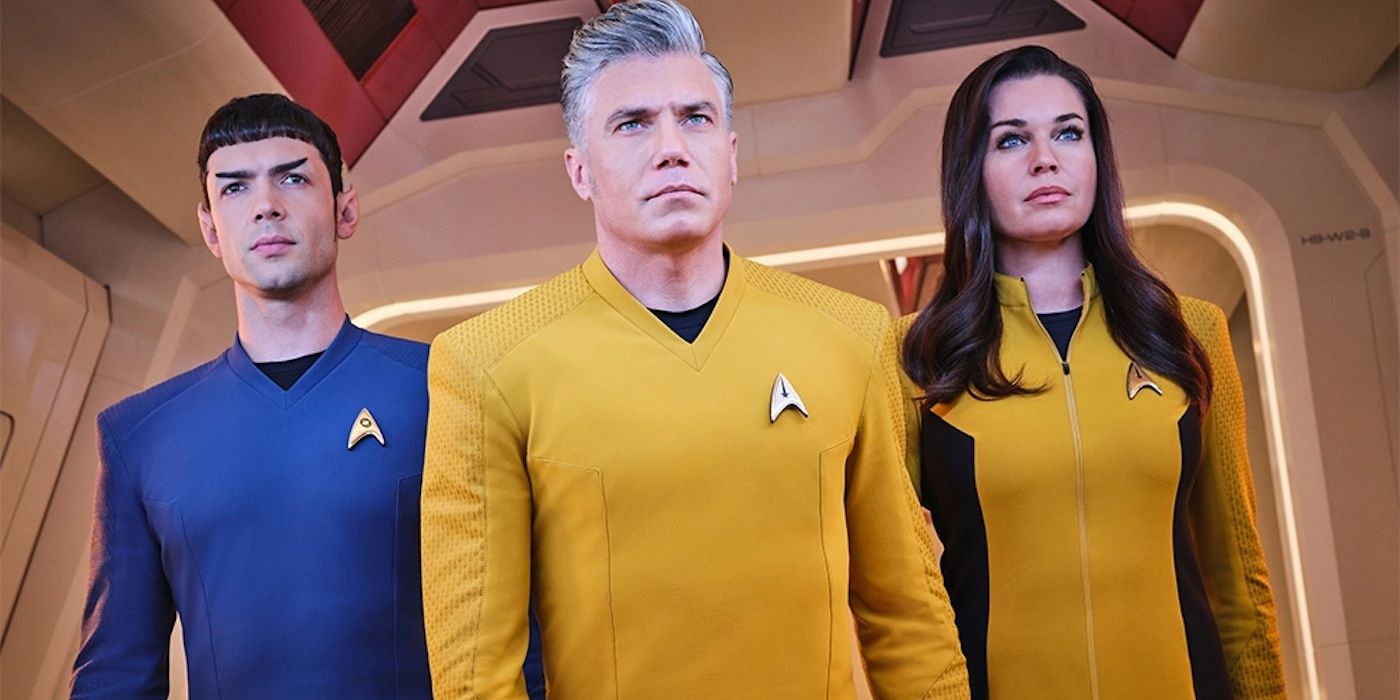
With the Kelvin timeline films on the back burner, Star Trek has been thriving on Paramount+ with an impressive slate of live-action and animated series, including one of the best new series of 2022: Star Trek: Strange New Worlds. The series, which stars Anson Mount as Captain Pike, started as a backdoor pilot in the Paramount+ mainstay Star Trek: Discovery and centers around the crew of the U.S.S. Enterprise before James T. Kirk (Paul Wesley) came aboard after Pike’s untimely fate.
Strange New Worlds really breaks from the new traditions forged by Discovery, by shifting its storytelling back to the more serial styling which a lot of series have drifted away from over the past decade. While there is a central plot at play, the series allows each member of the core cast to step into the spotlight for each episode, and it gives them the freedom to explore off-the-wall stories—like the episode where everyone was living out the plot of M'Benga’s (Babs Olusanmokun) daughter’s bedtime stories.
There’s a lot of heart packed into all of the Star Trek series on Paramount+, but Strange New Worlds manages to conjure up the essence of what made Star Trek: The Original Series such a hit when it first premiered. — Maggie Lovitt
Stranger Things
After a fun but somewhat repetitive third season left us wondering if it would be diminishing returns from here on out, Netflix's Stranger Things unleashed a twisty and terrific Season 4 to once again grab the pop-culture zeitgeist by the throat. And, at this point, it seems a good bet that it won’t let go until its final episode streams. While the good folks of Hawkins, Indiana have been battling otherworldly phenomena and meddling scientists since the show started, it was Season 4 that finally gave them an antagonist worth going to war against – Vecna a.k.a. Henry Creel a.k.a. One. Played in all his forms by a riveting Jamie Campbell Bower, Vecna and the mystery of where he came from provided a skeleton for the Duffer brothers to hang their scariest and most intense season on.
Meanwhile, the shippers got thrown into a frenzy with Joyce (Winona Ryder) and Hopper (David Harbour) finally kissing and Nancy (Natalia Dyer) realizing she might still be interested in Steve (Joe Keery) after all. Maya Hawke’s returning Robin continued owning every scene she appeared in, while a headbanging newcomer named Eddie Munson (Joseph Quinn) practically ran away with the whole show. By the season’s final scene, things looked darker for our heroes than they’ve ever been. But Season 4’s abundance of thrills leaves little doubt that it was all in service of setting up an epic final battle for the ages. — Robert Brian Taylor
Under the Banner of Heaven
In April of this year, we got sucked into the twisted murder and chaos of the Lafferty family in 1980s Utah with Under the Banner of Heaven. Based on the book of the same name which recounted a real-life murder, the show follows Mormon detective Jeb Pyre (Andrew Garfield) and his religiously skeptical partner Bill Taba (an excellent Gil Birmingham) as they investigate the gory and brutal murder of young mother Brenda Lafferty (Daisy Edgar-Jones) and her infant daughter. The double murder puts the detectives right at the center of the once respected devout Mormon family that Brenda married into: The Laffertys. The six brothers and their respective wives harbor sinister secrets, from Fundamentalist Mormonism to tax fraud to much more serious crimes such as abuse and murder.
Under the Banner of Heaven took all the classic elements of a murder mystery and elevated them with its complex and thoughtful exploration of faith and morality. Although the ensemble cast is all impressive in their own right, what set this show apart was the superb chemistry and performances of the two lead detectives. This wasn’t an easy watch, but one that will stay with you long after you finish it. — Emma Kiely
Wednesday
Rebooting something as long-lasting and beloved as The Addams Family is never an easy task. With so many iterations over the decades, many of which are the “definitive” version to their respective fans, it seems the key is to breathe new life into the story while making sure to keep the heart of what made a story so special in the first place. This is something that Netflix’s Wednesday does in spectacular fashion.
Starring Jenna Ortega as the titular Wednesday Addams, the show is part mystery series, part coming-of-age high school drama, tossed together with a supernatural-horror vibe that never crosses the line into genuinely terrifying. The show keeps all the heart that makes the Addams family so great — this is a family that genuinely does love each other — but subverts the usual “us vs. them” story that comes along with everyone’s favorite kooky family. Stellar performances from a talented ensemble cast create tension among several bands of misfits who must overcome their teenage drama in the name of solving the case, while also laying the foundation for hopefully many more seasons to come. — Arezou Amin
What We Do in the Shadows
Somehow after four seasons, the vampire mockumentary What We Do in the Shadows just keeps getting better each year. After separating the cast at the end of last season, Season 4 reunited this troupe and allows them to follow their own passions. Nadja (Natasia Demetriou) starts a vampire nightclub, Laszlo (Matt Berry) helps a rapidly-growing Colin Robinson (Mark Proksch) with his music career, and Nandor (Kayvan Novak) continues his quest for love, to disastrous results. But it’s Harvey Guillén’s Guillermo this season who really stands on his own, finding his own two feet after years of stagnation from the vampires.
As these characters expand who they are—some after hundreds of years on this Earth—we also have surprisingly grown to have more compassion and love for these bloodsuckers. Season 4 proved that like the vampires themselves, What We Do in the Shadows is showing no signs of getting old any time soon. — Ross Bonaime
The White Lotus
“These gays are trying to kill me!” Jennifer Coolidge tells a clueless Italian boatman in the finale of The White Lotus Season 2 — an already iconic moment in TV history. Suffice it to say, this season has met the expectations of everyone who loved the first, and then some. Moving the affluence and privilege to Italy, we got acquainted with resentful couples, opportunistic sex workers, a hotel manager struggling in love, three generations of creeps, a disillusioned personal assistant, and of course, good ol’ Tanya (Coolidge). Mike White harnesses what made the first season so enjoyable — eclectic characters and hilarious dialogue. But it also attempts to give the audience more lifelines. We have characters we can see more of ourselves in and therefore, have someone to truly root for. The storylines are more familiar and thus, more compelling.
If you’ve been near Twitter, you’ll know that the actors came to set ready to kill, particularly Aubrey Plaza, Meghann Fahy, and Coolidge. You might think these are just a bunch of rich white people, and yes, they are, but every actor imbues their character with complexity, deviance, and mystery — making the events of the final episode anyone’s guess. Undoubtedly one of this year’s brightest highlights. The best part of all: Season 3 is already confirmed! — Emma Kiely
Willow
While we’ve had our fair share of fantasy shows premiere across broadcast TV and streaming services this year — some of which also made it onto this list — but nothing hit the spot for me quite like Willow, the Disney+ sequel to the much-beloved film of the same name from 1988. Lucasfilm has been knocking it out of the park with their series this year, but Willow is their only fantasy offering, and for anyone hoping for a taste of the magic they felt as a child playing dress up or wishing they could journey to distant, fantastic lands, creator Jon Kasdan and returning star Warwick Davis deliver in spades alongside a brilliant new cast of characters.
Reboots and sequels are a tough thing to get right, but the passion of the cast and crew — which also includes Ruby Cruz, Ellie Bamber, Amar-Chadha Patel, and Tony Revolori, among others — bleeds through in the story of the Nelwyn magician tasked once again with saving the realm from the forces of evil, which makes it both compulsively watchable and infinitely emotional. Even without Cherlindrea’s wand, Willow imbues a sense of magic and hope into every moment, telling a rich and complex story that continues the message of the original film without serving simply as nostalgia bait for everyone who had a crush on Val Kilmer as Madmartigan growing up. (Or was that just me?) Whether you’ve got kids to introduce to the world of Tir Asleen, or simply want to revisit it yourself, Willow is the perfect binge for anyone looking for a bit of adventure. —Maggie Boccella

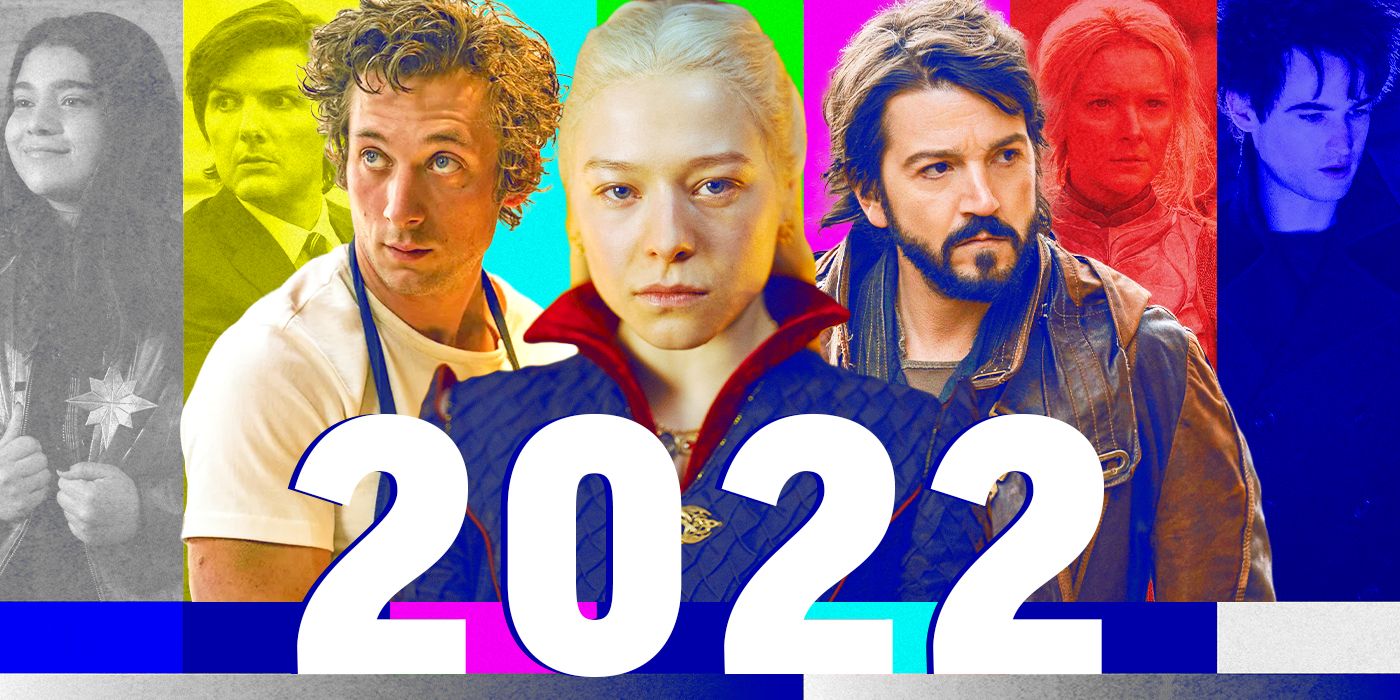
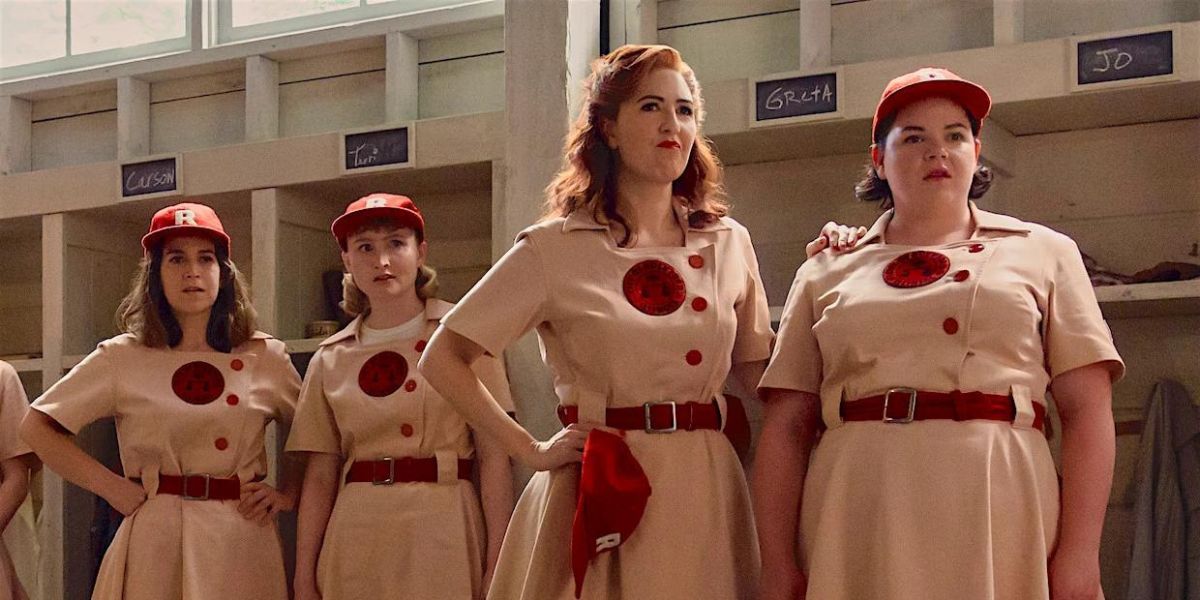
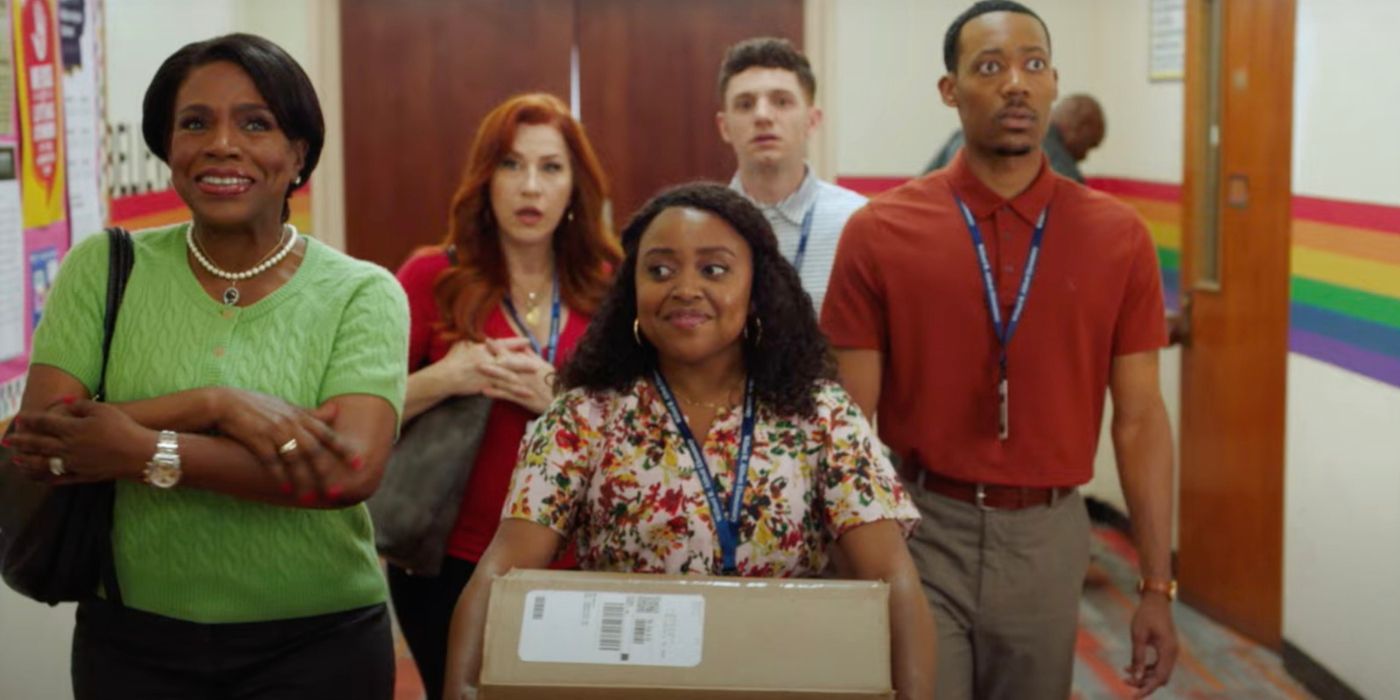
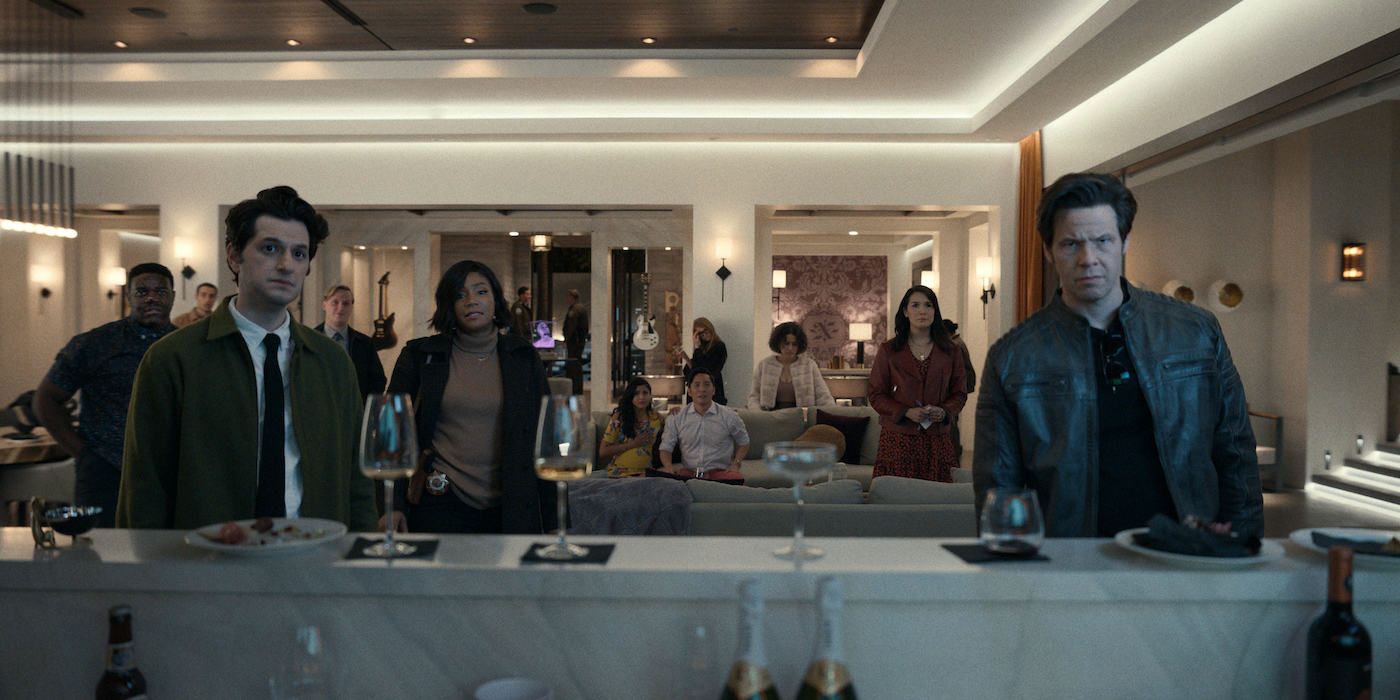
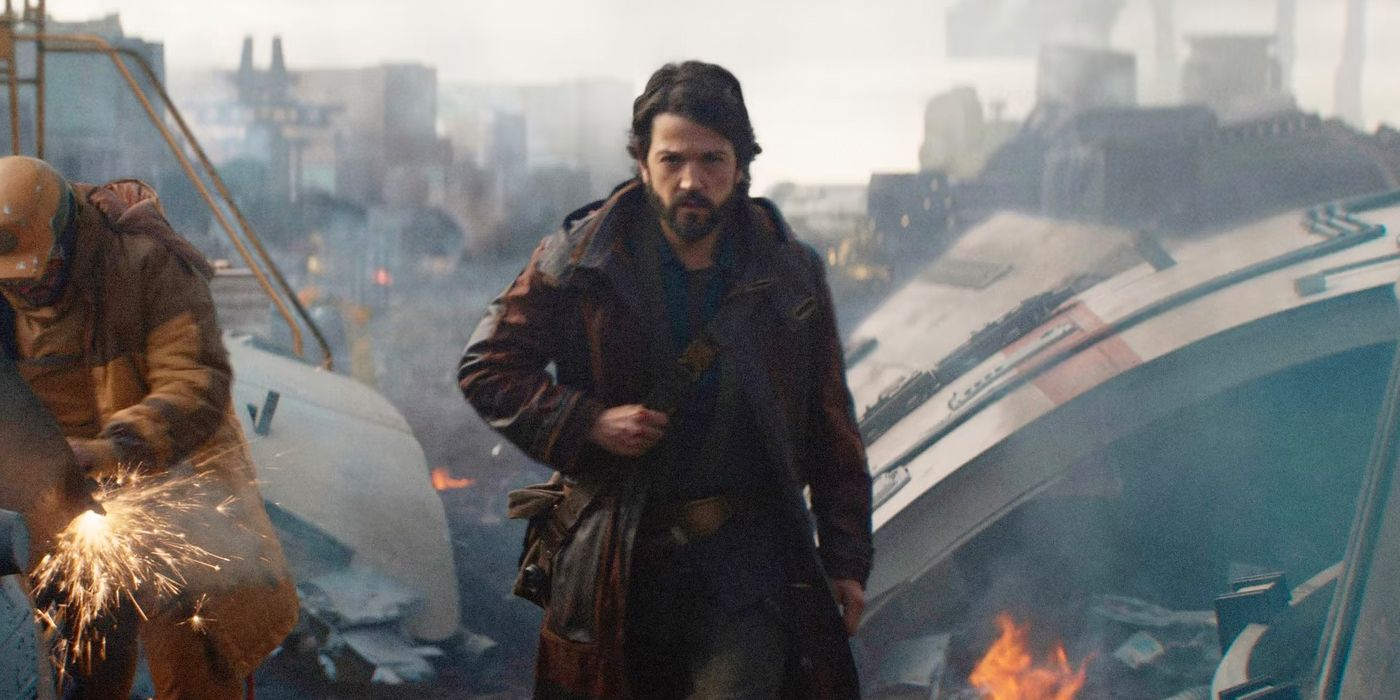
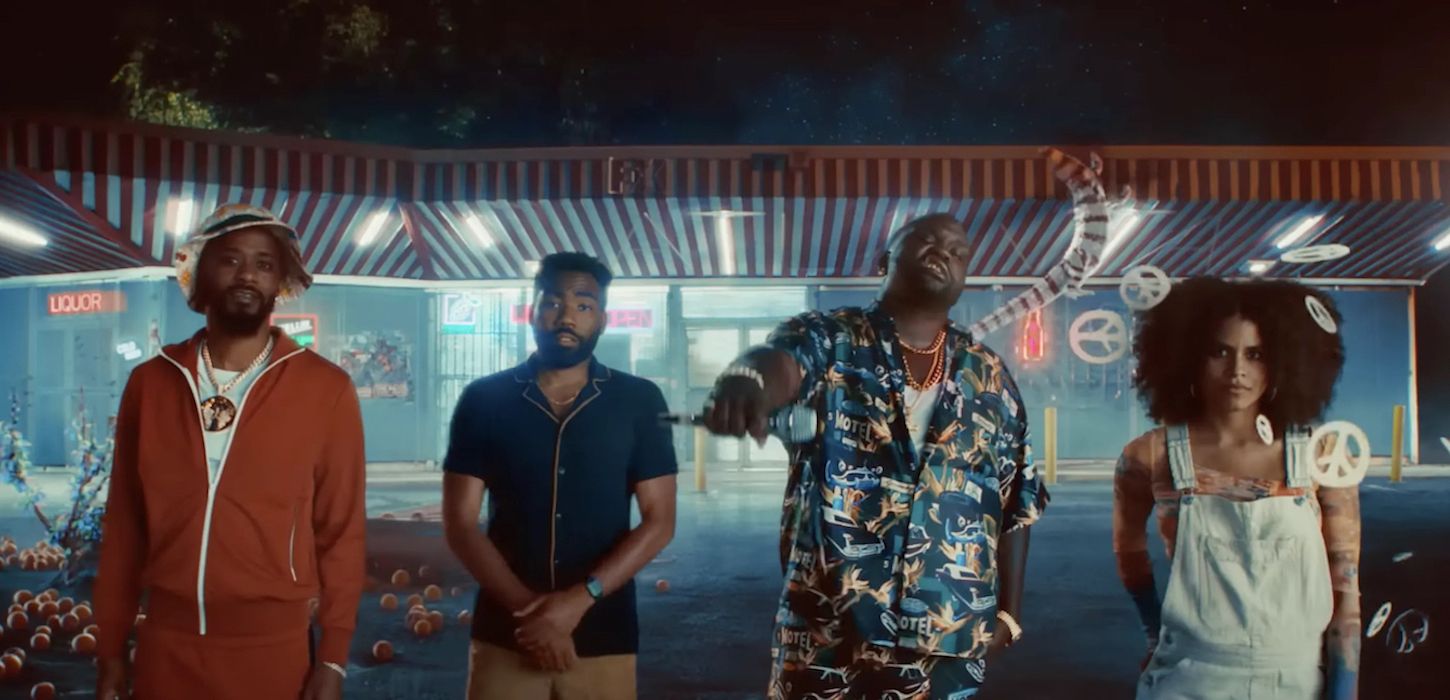
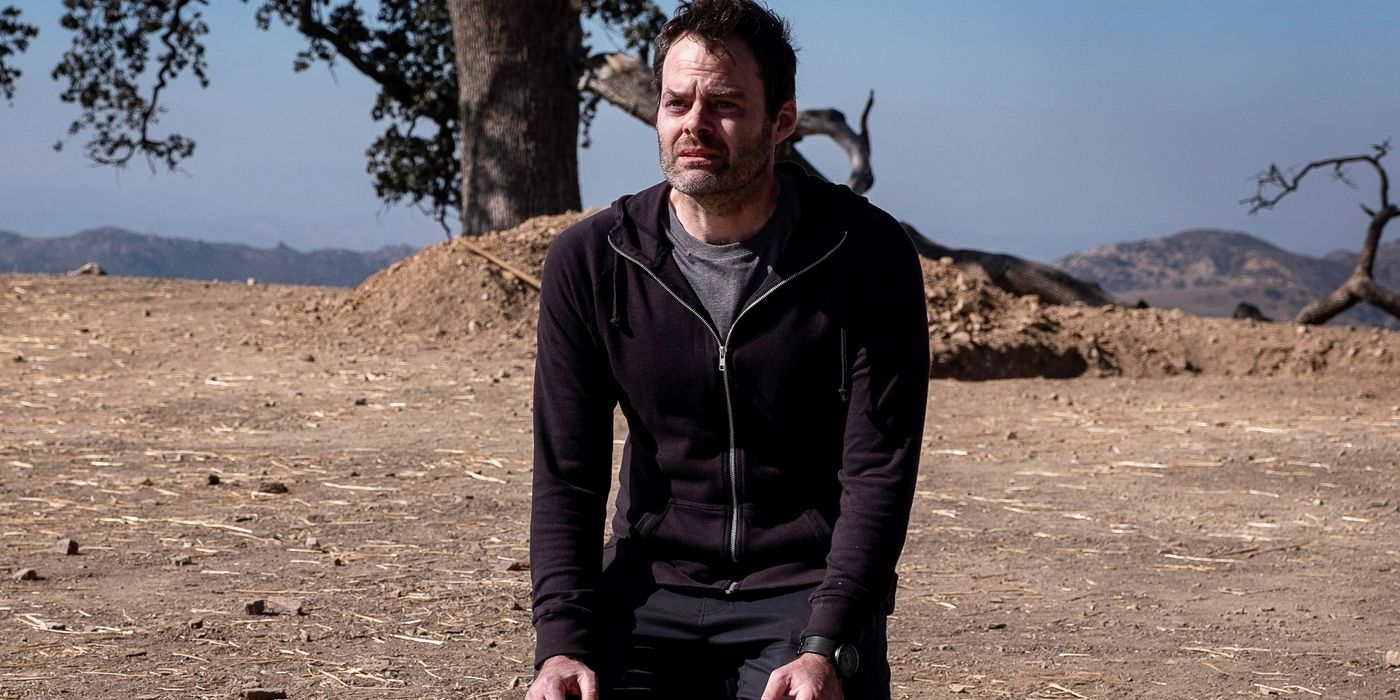
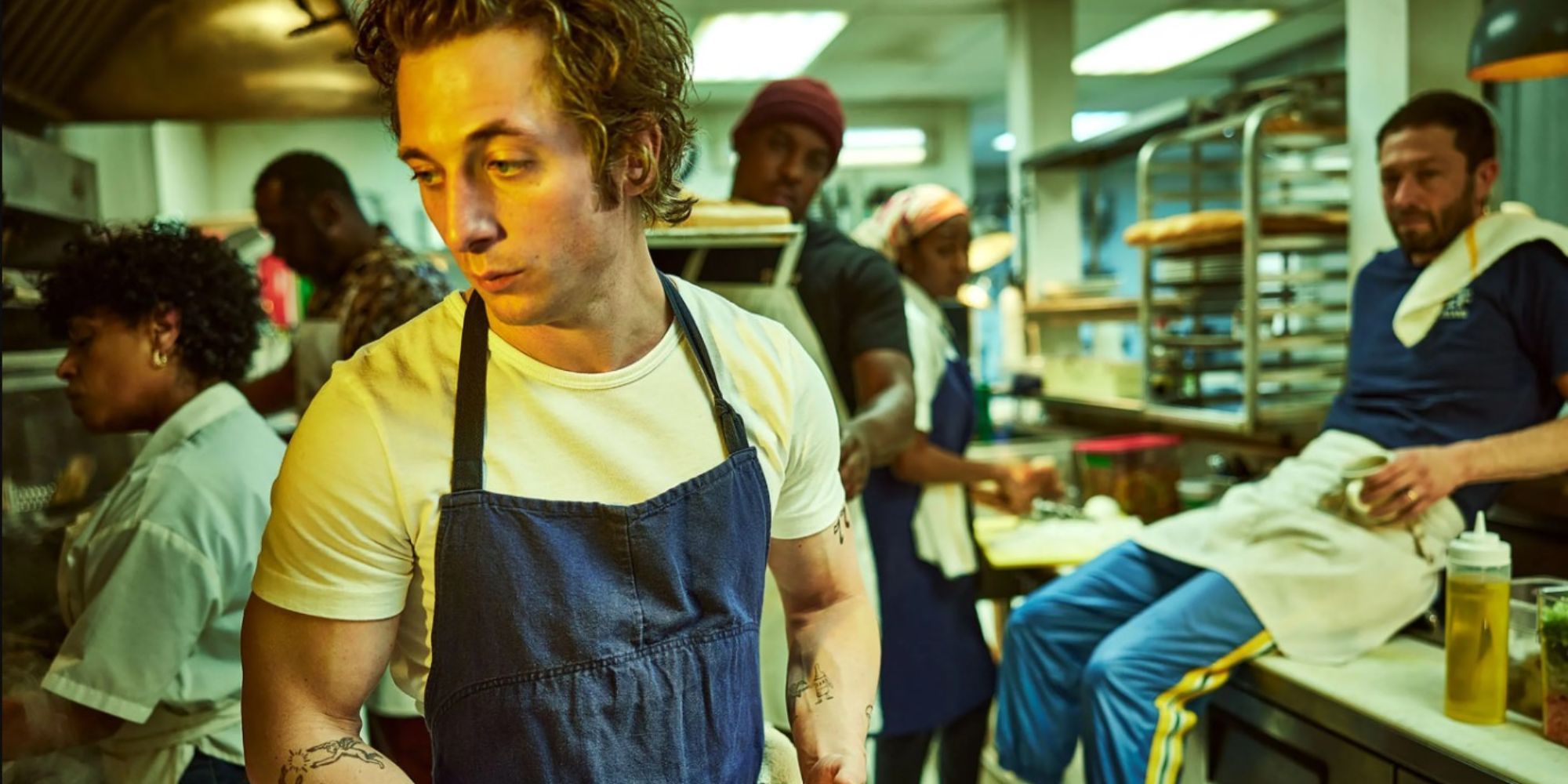
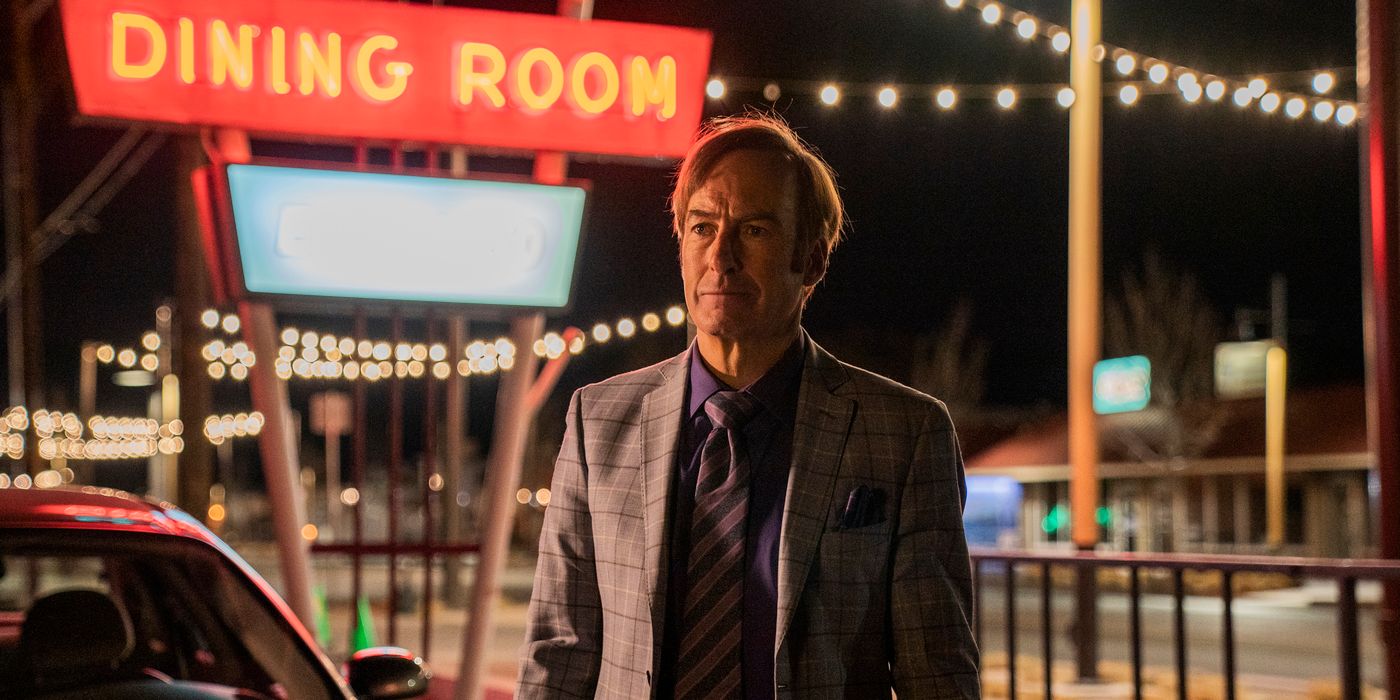
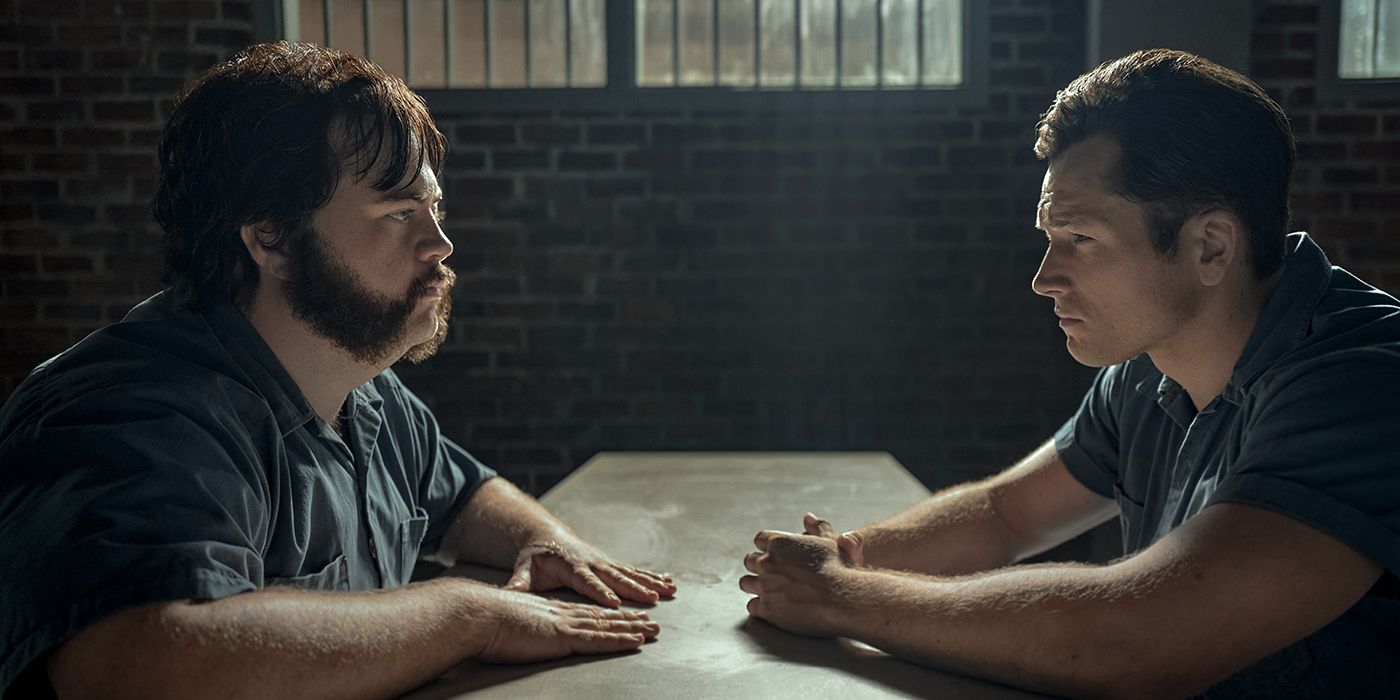

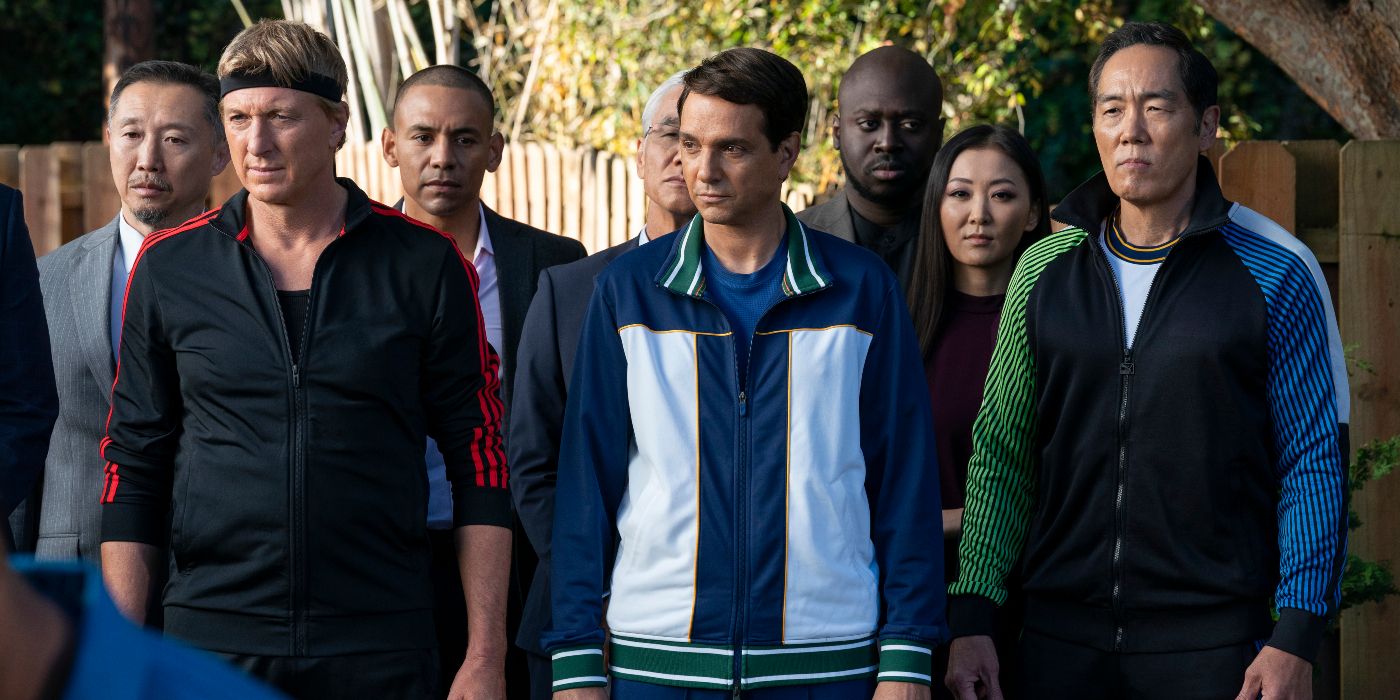
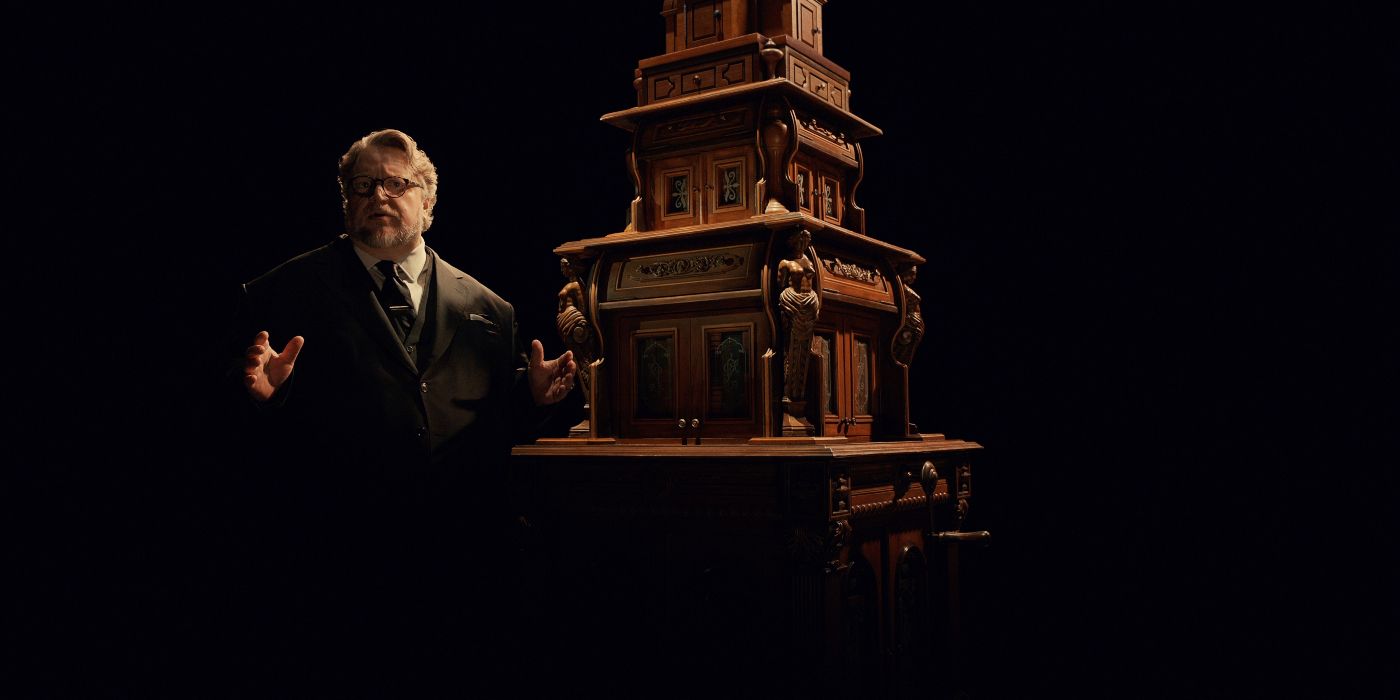
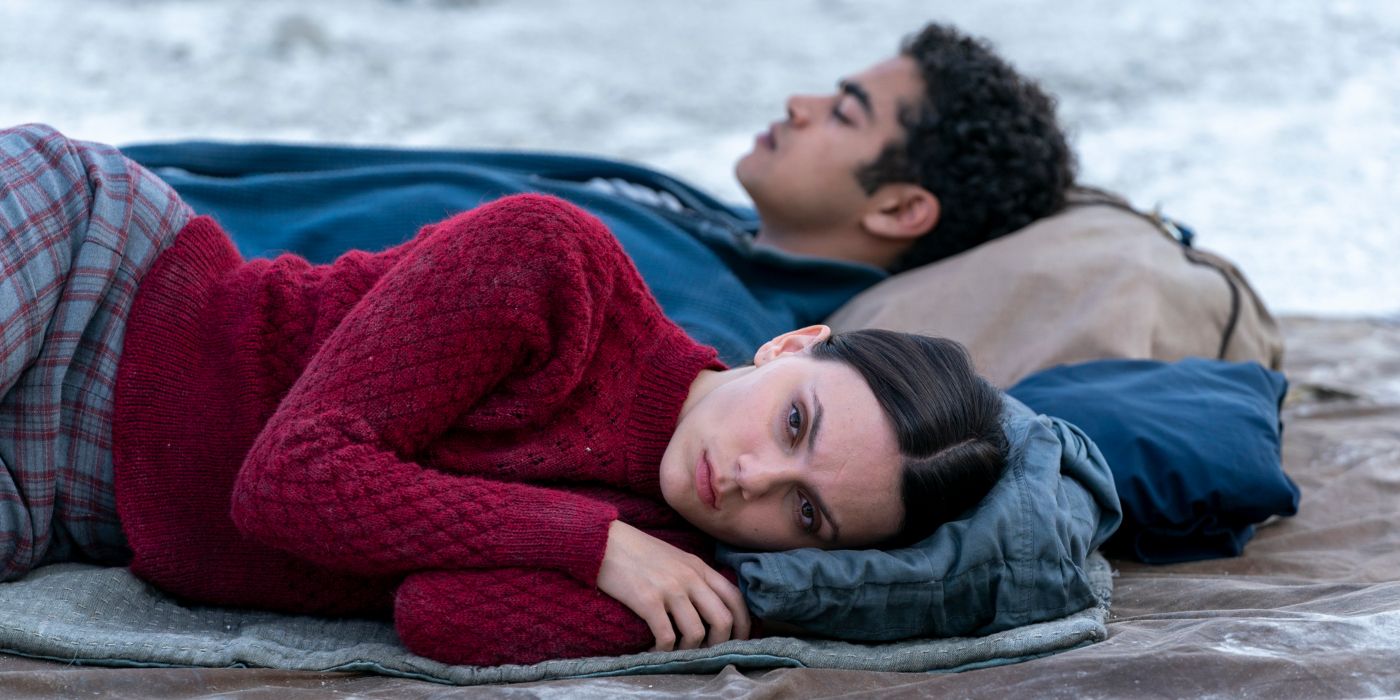
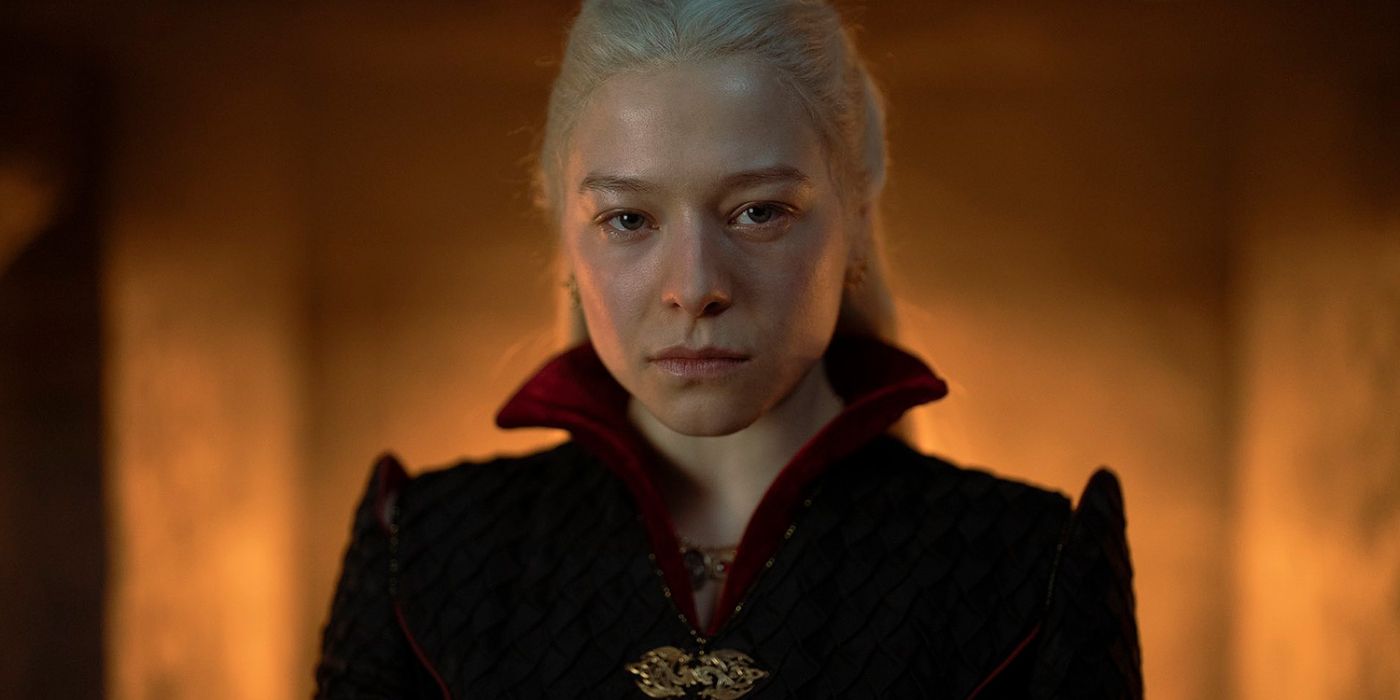
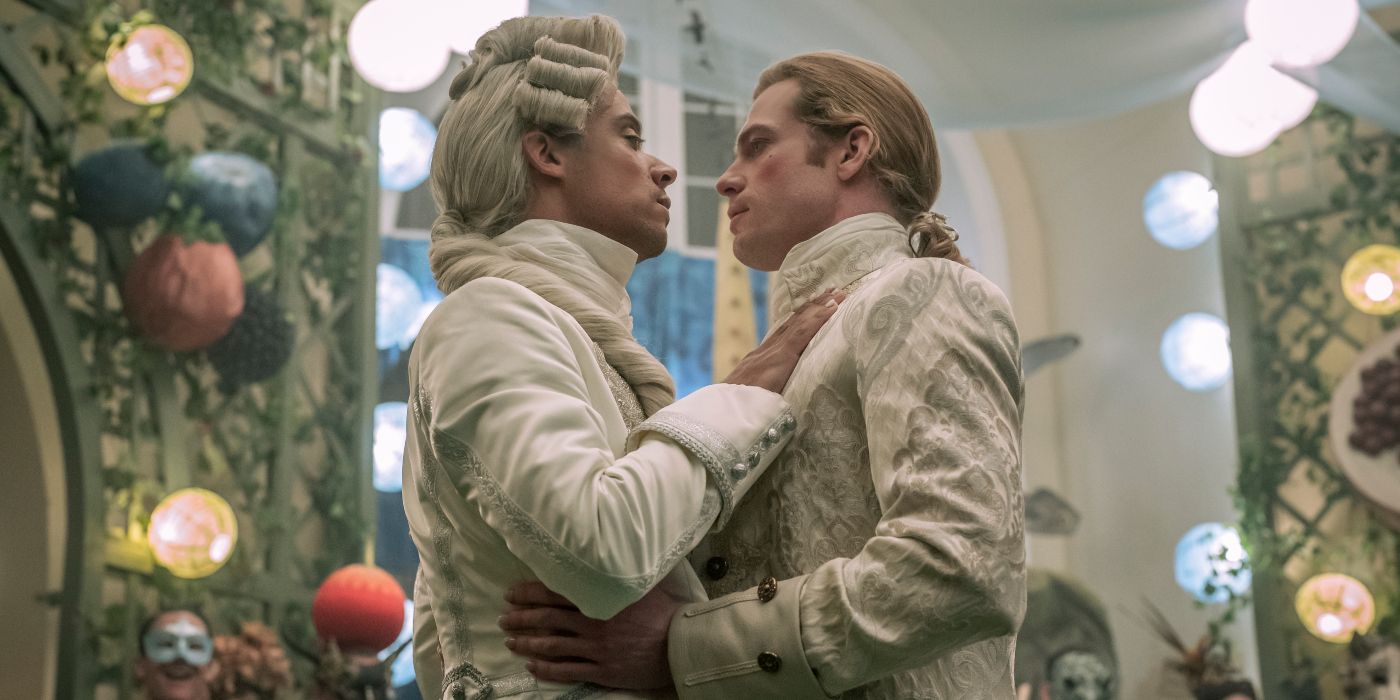
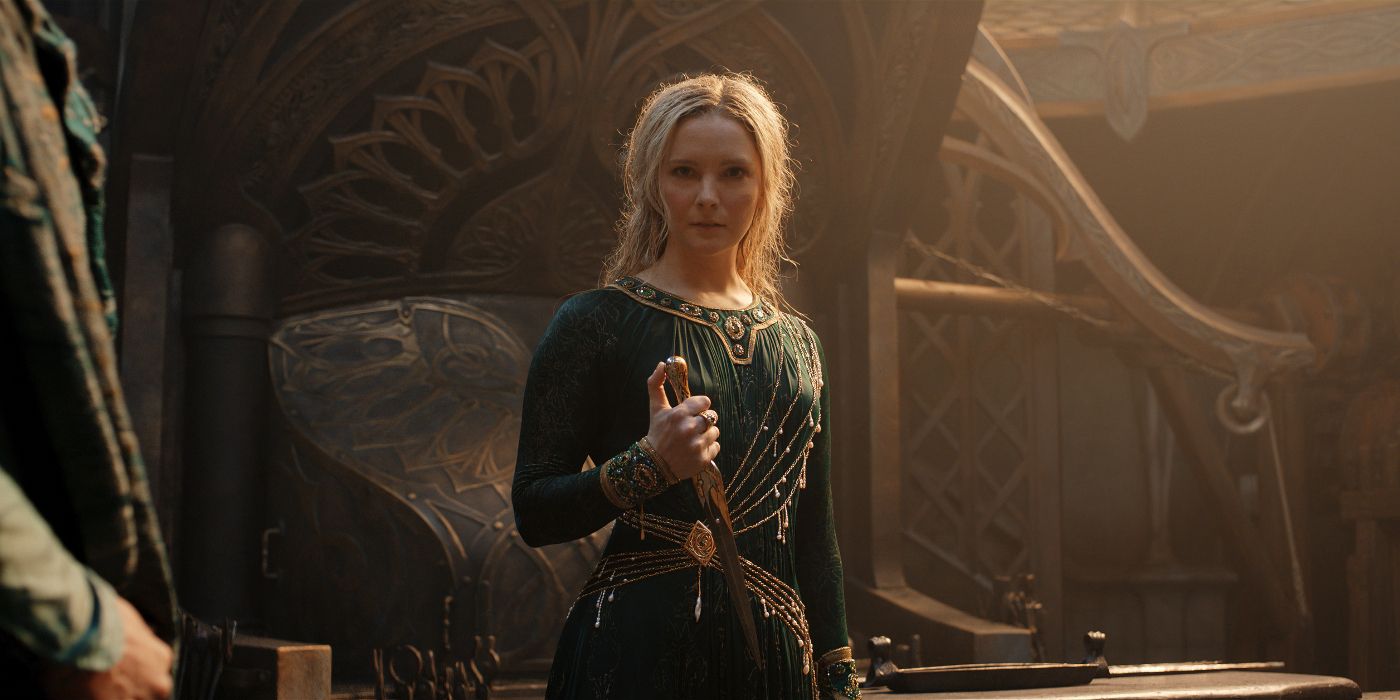
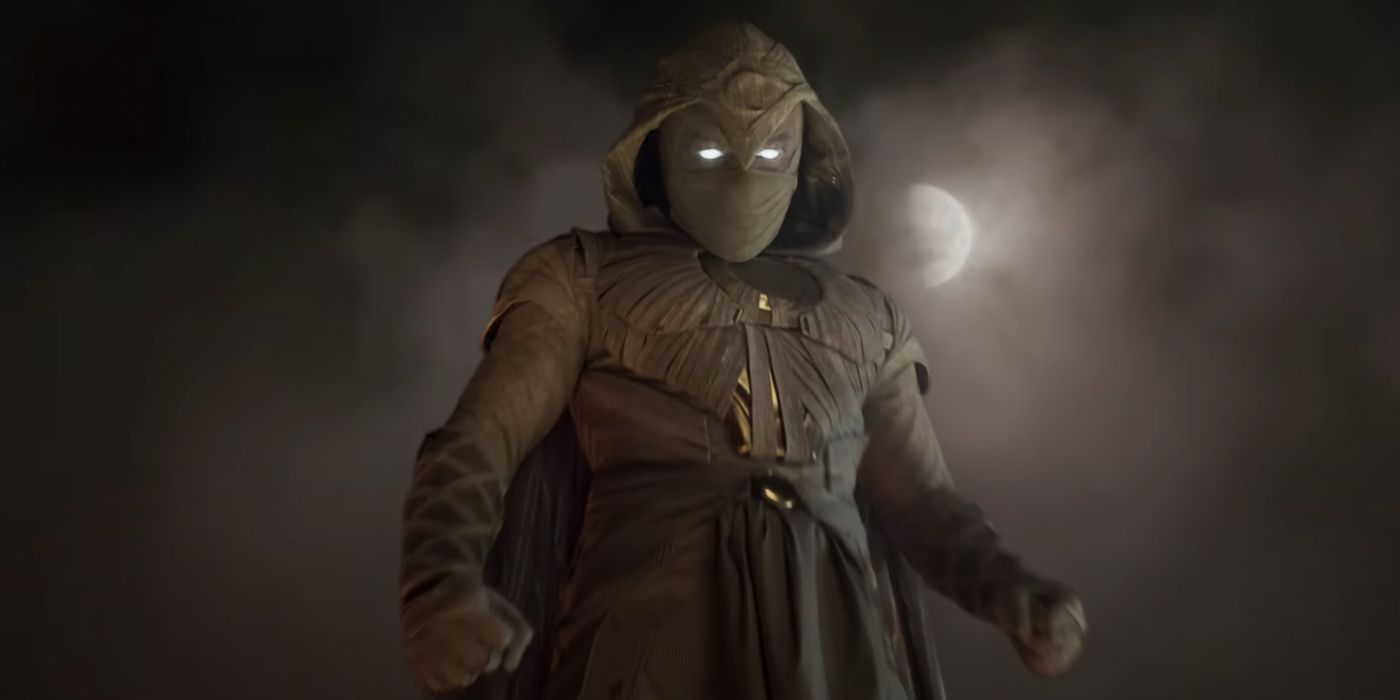
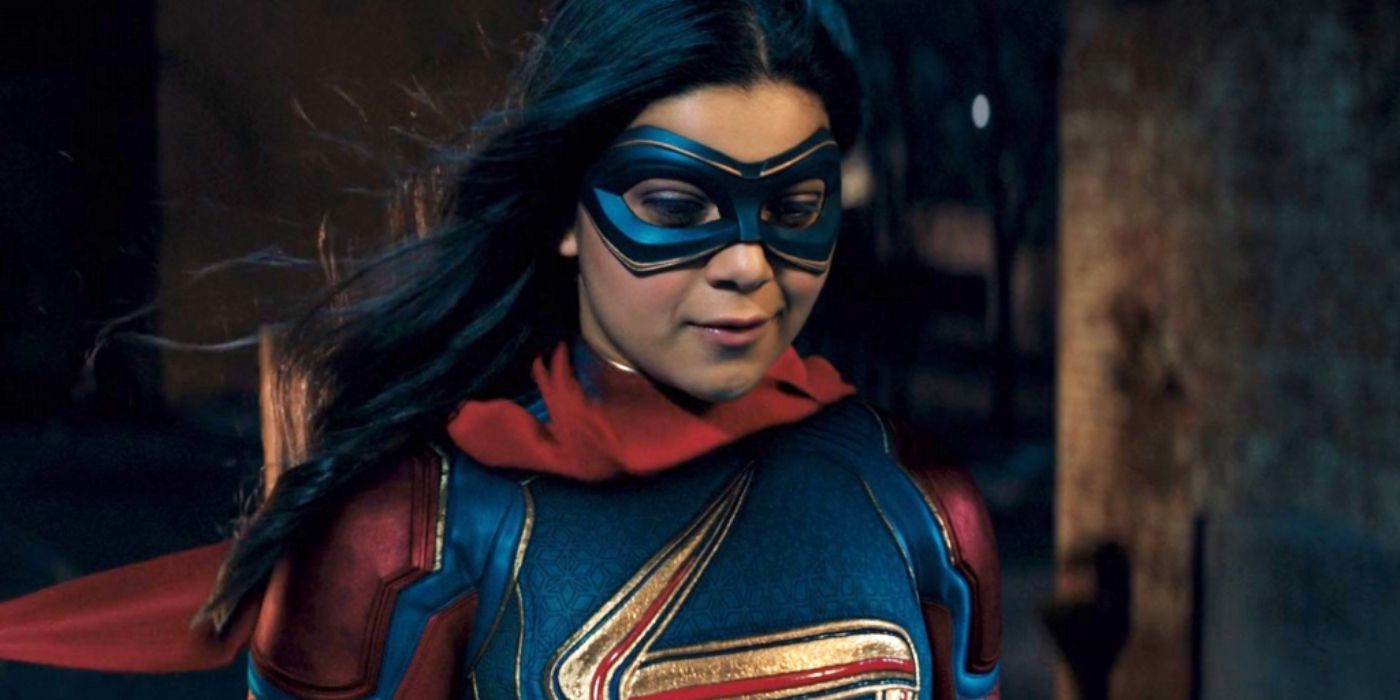
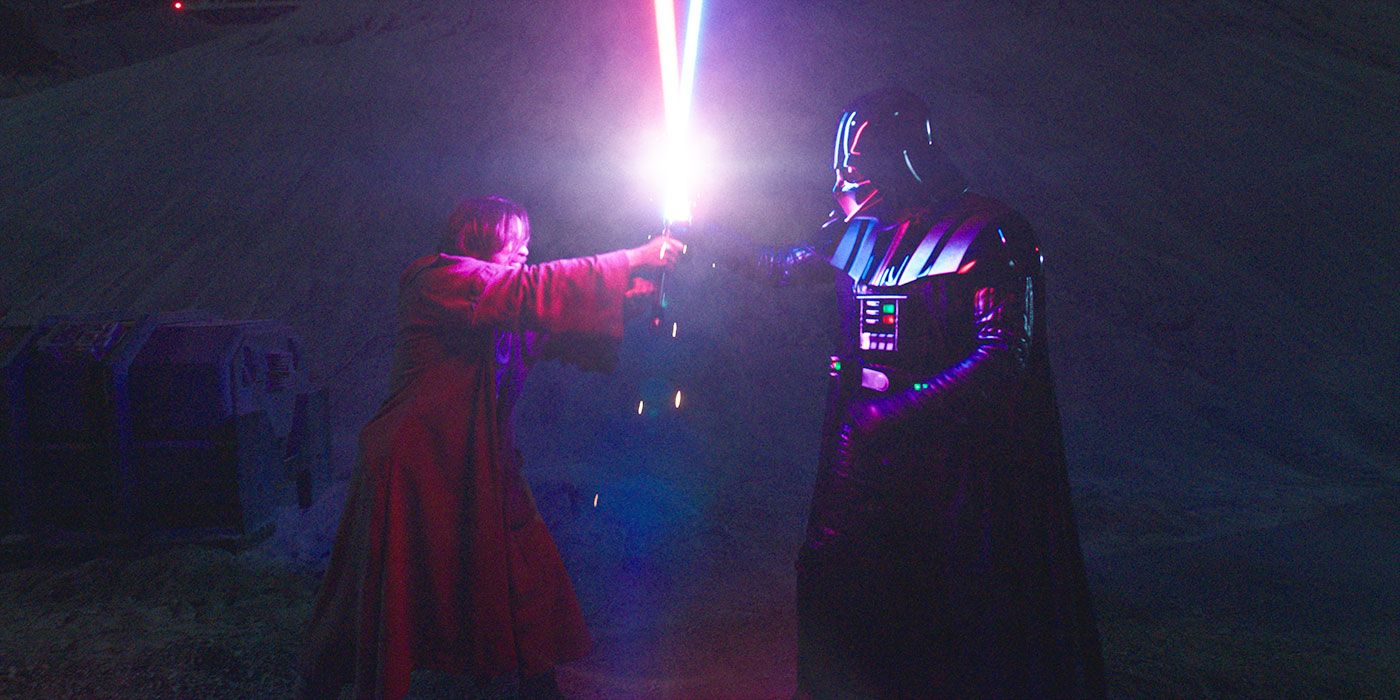
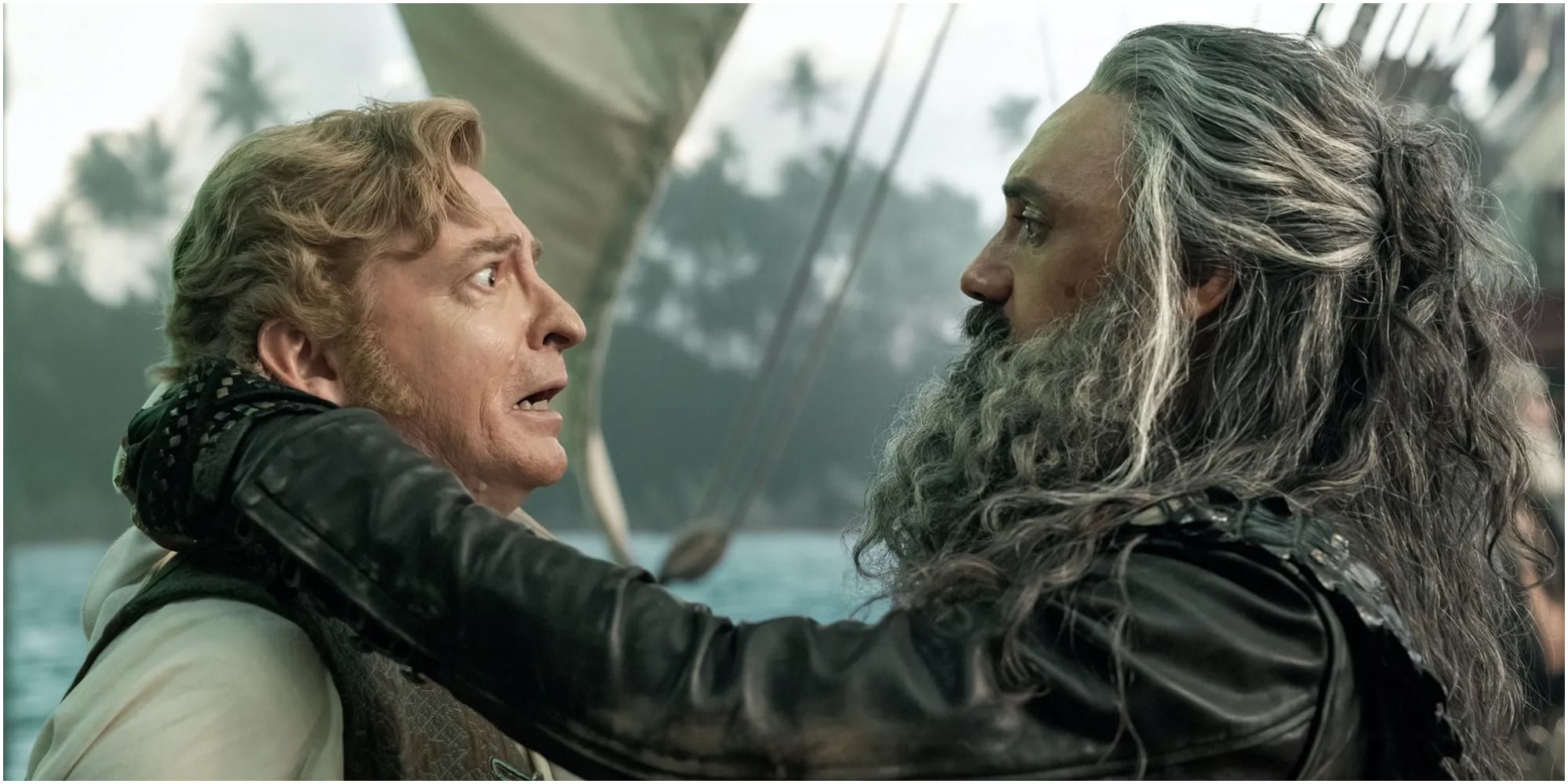
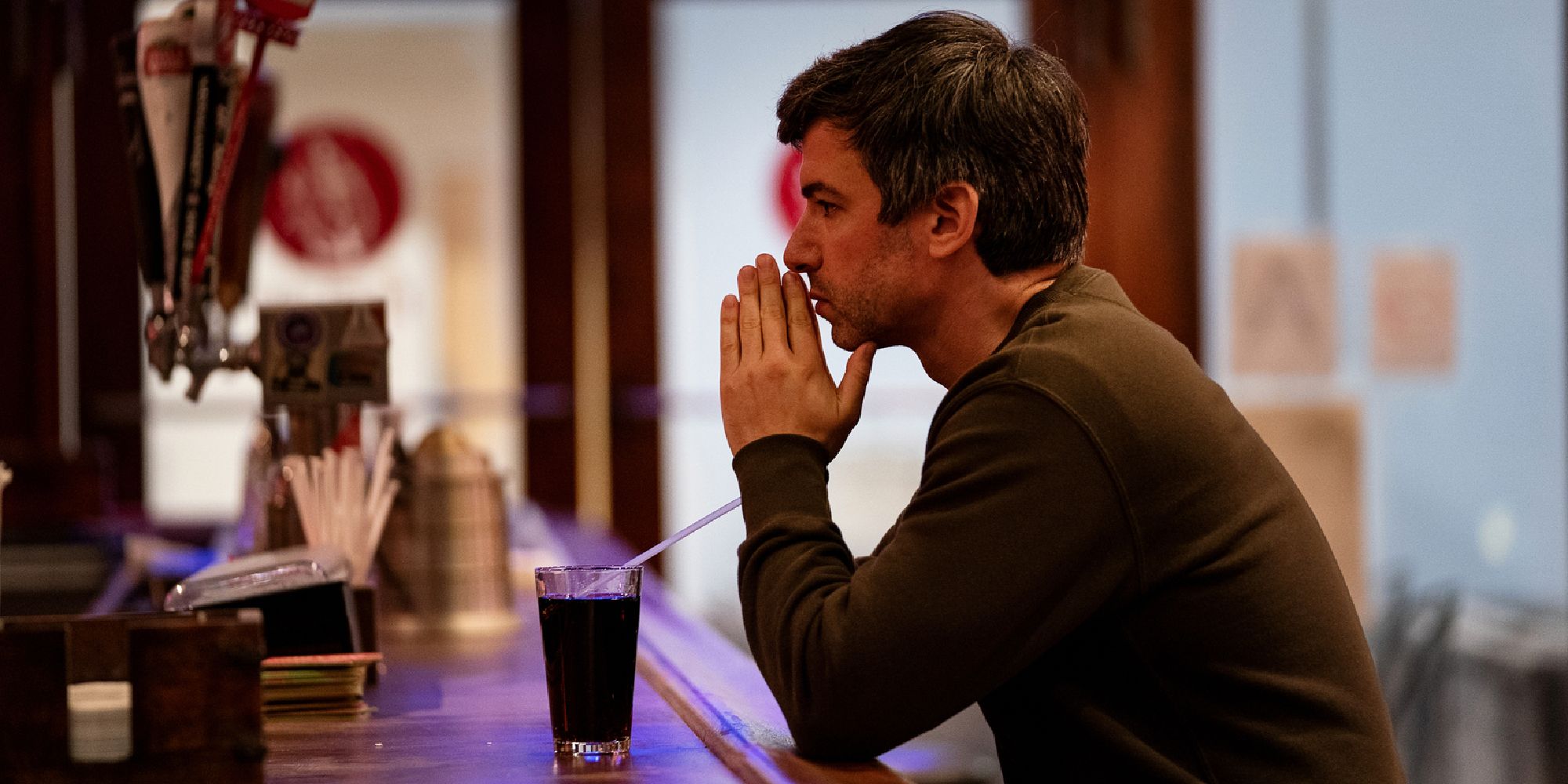

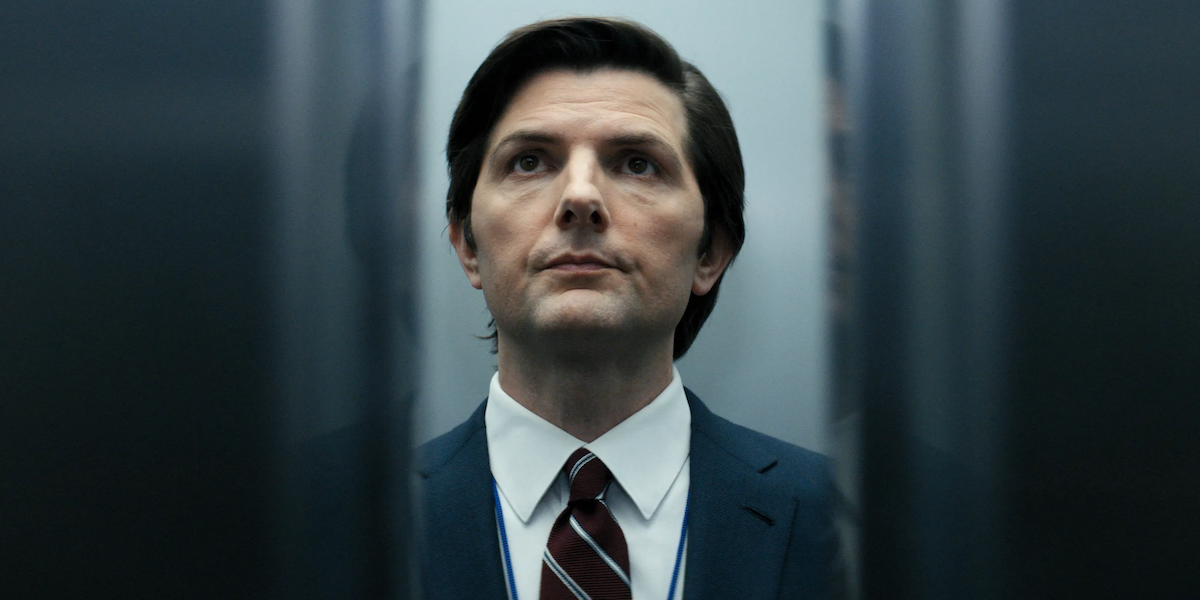
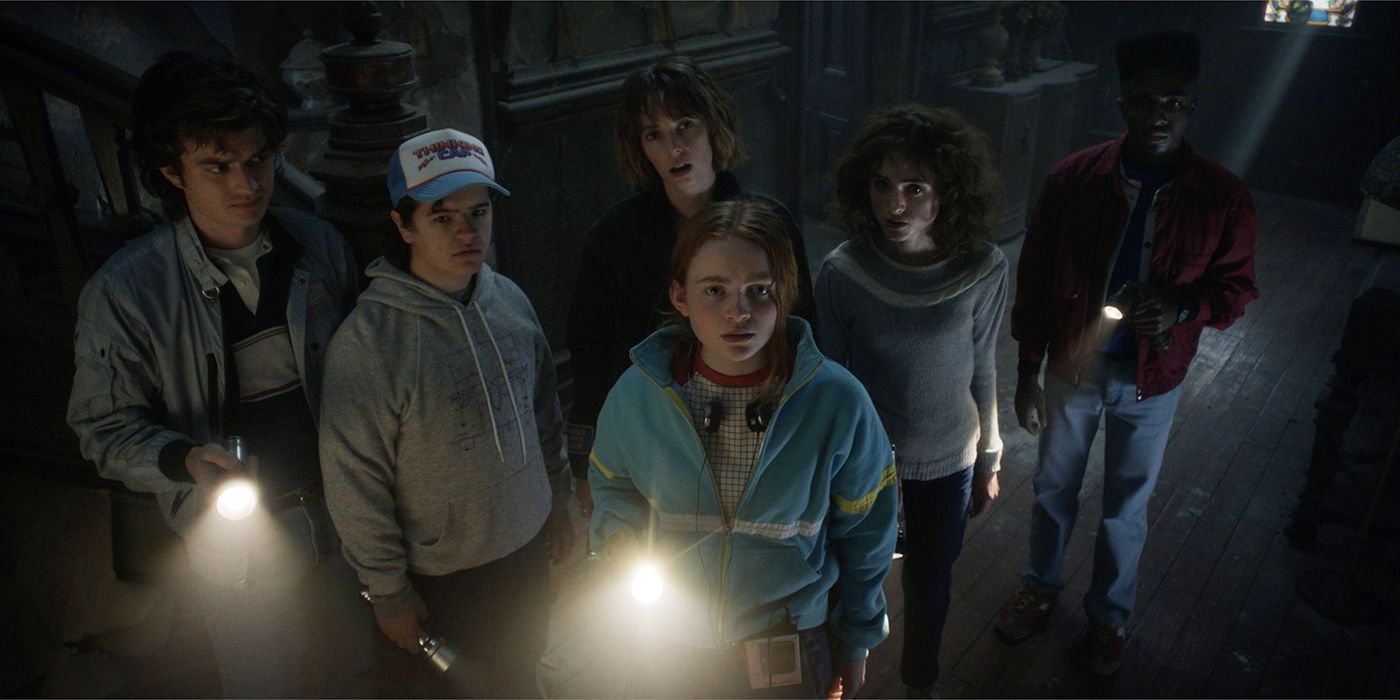
-1.jpg)
